- Adolescent Neuroscience
- Autism Affinity Group
- Autonomic and Spinal Theranostics
- Brain Tumor
- Bridges in Translational Mental Health
- Circadian and Sleep Medicine Affinity Group
- Clinical and Preclinical Magnetic Resonance Spectroscopy
- Computational Neuroscience Affinity Group
- Decision Making Affinity Group
- Electrophysiology of Brain Dynamics Affinity Group
- Genome Editing
- Glial Biology Affinity Group
- History, Philosophy and Science Affinity Group
- Immunology in Neuroscience Affinity Group
- Inner Ear Affinity Group
- Intellectual and Developmental Disabilities Research Affinity Group
- Neuroendocrinology Affinity Group
- Neuroimaging
- Neuroscience and Educational Learning Sciences
- Neuroscience Communication Affinity Group
- Neuroscience History Affinity Group
- NeuroTechnology and Neuromodulation
- Neurovirology
- Rasmussen's Encephalitis
- Reward and Decision Making Neuroscience
- Synapse to Circuit Club Affinity Group
- UCLA Cannabinoid Affinity Group
- UCLA Microbiome Center
- UCLA Music, Neuroscience, and Integrative Medicine
- Visual Neurosciences
Mission and Goals:
The explosion of research on the adolescent brain in recent years has triggered enthusiastic attention from psychologists, neuroscientists, policymakers and legal scholars alike. At no other time in life is there greater intrinsic motivation to explore new experiences than during adolescence. Youth are often at the forefront of new ideas, impassioned defenders of ideals, and fervid leaders. These characteristics are what make adolescents — despite better cognitive, intellectual and reasoning abilities than children, adolescents are not simply ‘mini-adults’ and despite immature emotion regulation, inexperience and dependence on caregivers, adolescents are not overgrown children. Instead, they are in a distinct developmental stage that facilitates the adaptive transition from a state of dependence on caregivers to one of relative independence.
Research conducted over the past decade in animal models and using brain imaging technology has identified key neurobiological changes that underlies this significant shift in behavior. However, adolescent neurobiology is an emerging field that continues to evolve and it necessitates expertise from multiple disciplines to inform the characteristic behavioral changes that occur as children transition into adolescence. UCLA has an abundance of scholars across campus, including Psychology, Neurology, Brain Mapping, Anthropology, Education, Public Health, and Psychiatry, with expertise in adolescent development.
The goal of this affinity group is to promote discourse among investigators at UCLA with unique and important perspectives on adolescent neurobiology and to provide a forum for graduate and postdoctoral trainees to interact with adolescent experts. Specifically, we were interested in characterizing the developing brain within the context in which is matures, considering the social environment, biological development (e.g. puberty), stress and immune processes. Our interest group has garnered considerable participation from PIs and trainees alike. Along with core faculty in departments across campus, including Mirella Dapretto and Carrie Bearden (Psychiatry and Biobehavioral Sciences), and Julie Bower, Ted Robles and Naomi Eisenberger (Psychology), we will generate interest among other faculty and students, lead trainee workshops and journal clubs, establish and extend collaborations, host outside speakers and an annual symposium.
How to Join:
Adriana Galvan, PhD
Department of Psychology
Phone: 310-206-4850
Email: agalvan@psych.ucla.edu
or
Andrew Fuligni, PhD
Department of Psychology
Phone: 310-794-6033
Email: afuligni@ucla.edu
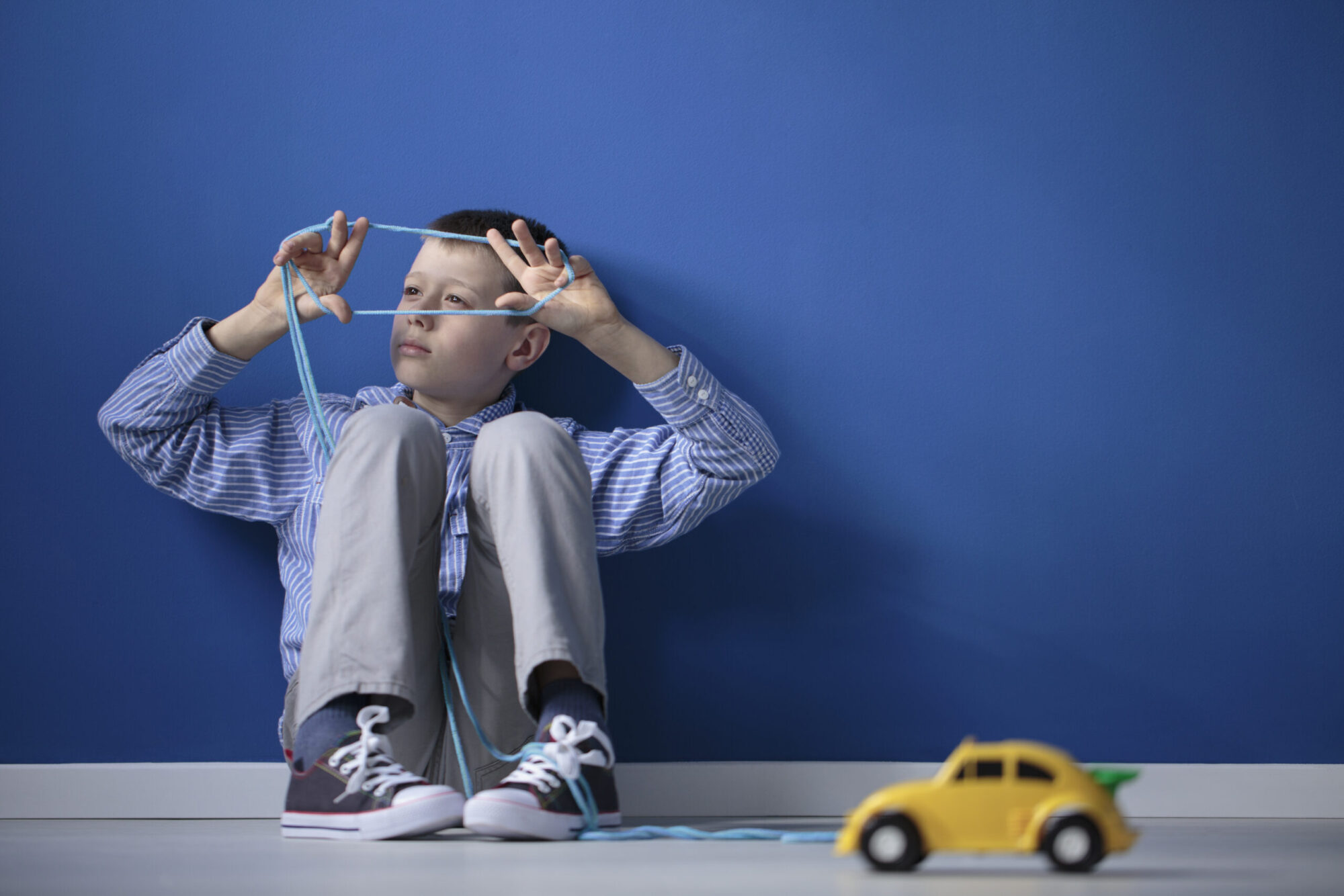
Mission and Goals:
Autism is one of the fastest growing childhood disorders in America. The primary goal of the Autism Affinity Group is to facilitate intellectual exchange and foster and expand an interdisciplinary autism research environment at UCLA.
In April of 2003, UCLA was funded as part of the Studies to Advance Autism Research and Treatment (STAART) program through the National Institute of Mental Health (NIMH). UCLA is one of 8 STAART Centers in the U.S. and also one of 10 Collaborative Programs for Excellence in Autism (CPEA) funded by the National Institute of Child Health and Human Development (NICHD). The central theme of the Center’s research program involves understanding the origins of social, communicative, and language deficits demonstrated by individuals with autism. A second theme is a focus on the design and testing of experimental treatment interventions. These and other individual R01 grants serve as a source of cohesion for investigators working in autism.
One of the Center’s long-term goals is to develop systems for cooperative and collaborative investigations and attract new investigators to autism research. The Autism Affinity Group provides investigators immersed in autism research with an opportunity to share their work with junior investigators and researchers in other fields. This opens up the possibility of future collaborations cross-disciplines.
The Autism Affinity Group meets on the first Friday of each month and includes a presentation by an investigator working in the field of autism research or in a related area of science, which may lend contributions to autism research. When the budget permits, outside speakers will also participate.
How to Join:
Dan Geschwind, MD, PhD
Department of Neurology
2506A Gonda Building
Mail Code: 176122
Phone: 310-206-6814; FAX: 310-267-2401
Email: dhg@mednet.ucla.edu
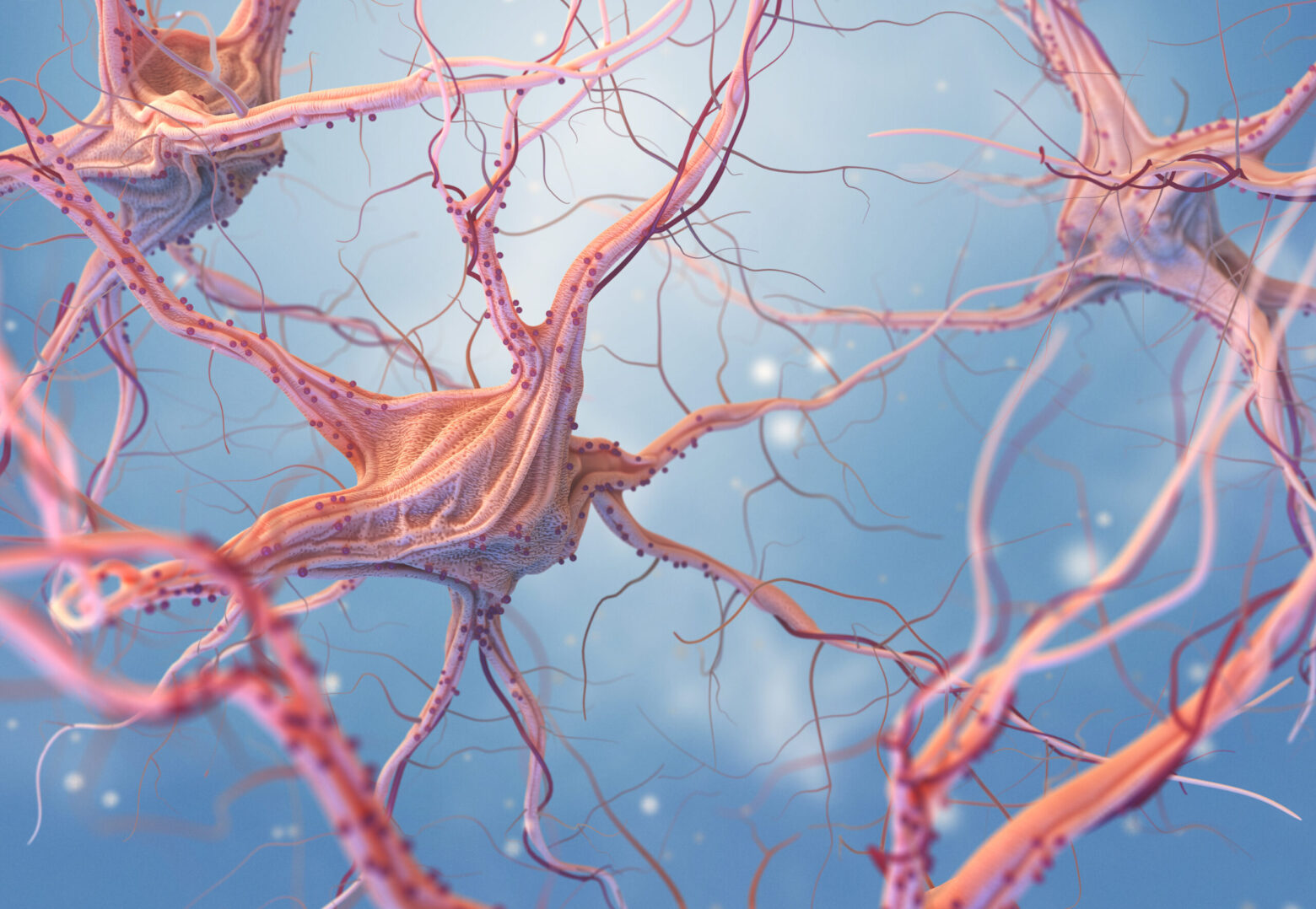
Mission and Goals:
The mission of this affinity group is to provide a focused platform for the researchers at UCLA and its community who share a strong common interest in coherently advancing the fundamental science and innovative technology for the autonomic and spinal nervous systems, to develop transformative translation solutions, as well as to coordinate effort to catch and harvest the upcoming wave of funding opportunity provided by federal agencies and industry sponsors.
Affinity Group Participants:
Wentai Liu, Ph.D.
Jeffrey Ardell, Ph.D.
Sylvie Bradesi, Ph.D.
Joel Burdick, Ph.D
M.C. Frank Chang, Ph.D.
Chi On Chui, Ph.D.
James Dunn, MD and Ph.D.
Reggie Edgerton, Ph.D.
Million Mulugeta, DVM, Ph.D.
Kalyanam Shivkumar, M.D., Ph.D.
Stephanie Seidlits, Ph.D.
Catia Sternini, M.D.
Yvette Taché, Ph.D.
Ben Wu, DDS, Ph.D.
Charles Chien, Ph.D.
Ray de Leon, Ph.D.
Christine Dy, Ph.D.
Pu-Qing Yuan, Ph.D.
How to Join:
Professor Wentai Liu
Distinguished Professor
Department of Bioengineering, Department of Electrical Engineering
California NanoScience Institute (CNSI)
Rm. 5121D/Eng V
Phone: 310-825-9129 (o)
Email: wentai@ucla.edu
Web: https://www.seas.ucla.edu/IBR
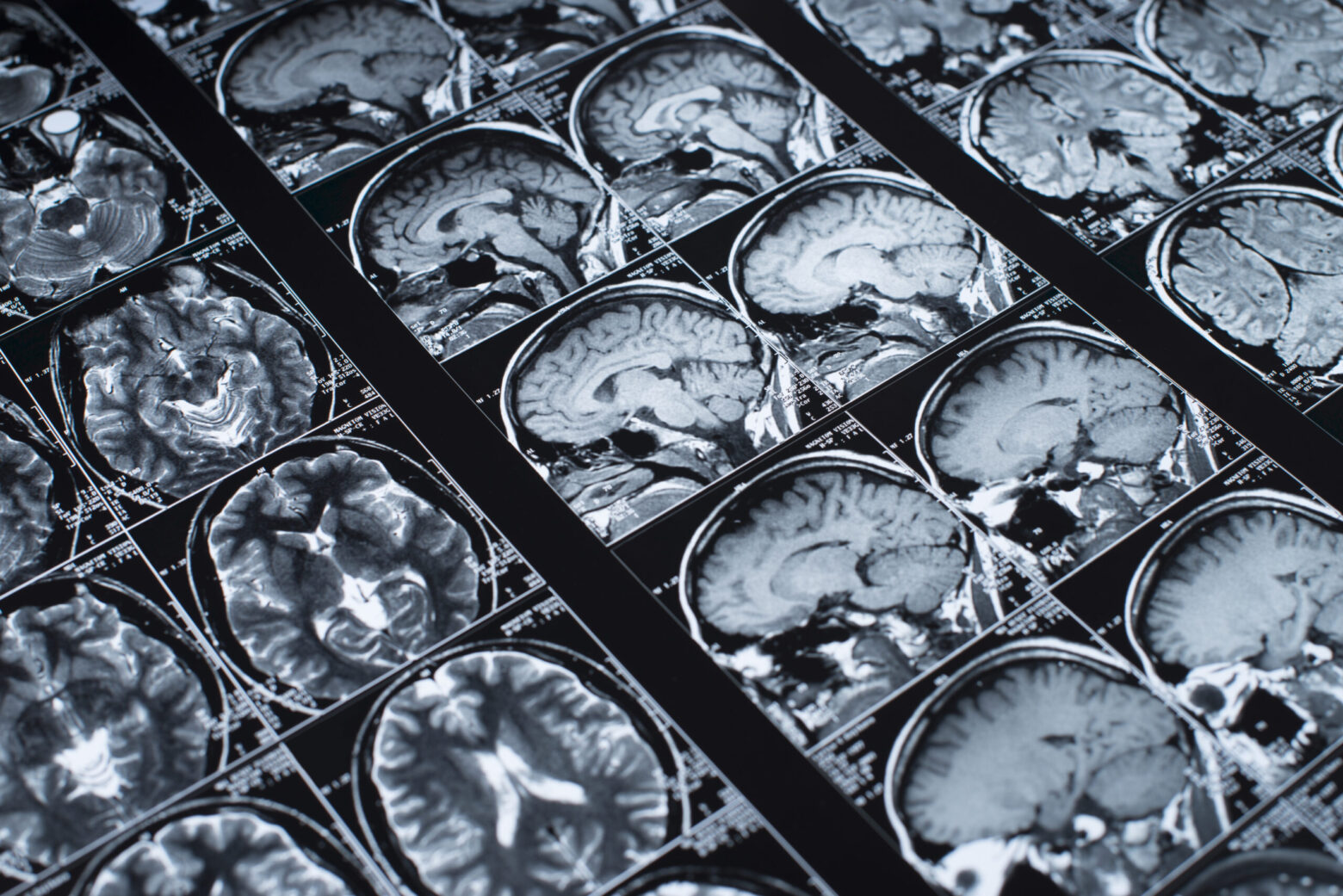
Mission and Goals:
The goal of the Brain Tumor Affinity Group is to enhance communication, collaboration and synergy among the growing number of basic science and translational investigators in the field of brain tumor research here at UCLA and to promote UCLA’s visibility as a leader in the area of brain tumors locally, nationally and internationally.
Affinity Group Participants:
Steve Bensinger, Ph.D.
Timothy F. Cloughesy, M.D.
Benjamin Ellingson, Ph.D.
Tania Kaprealian, M.D.
Harley Kornblum, M.D., Ph.D.
Albert Lai, M.D., Ph.D.
Linda M. Liau, M.D., Ph.D.
David Nathanson, Ph.D.
Stanley F. Nelson, M.D.
Leia Nghiemphu, M.D.
Frank Pajonk, Ph.D.
Whitney Pope, M.D.
Robert M. Prins, Ph.D.
Elaine F. Reed, Ph.D.
Harry V. Vinters, M.D.
Isaac Yang, M.D.
William Yong, M.D.
How to Join:
Linda M. Liau, MD, PhD
Professor, Department Neurosurgery
300 Stein Plaza, Suite 420
Mail Code: 690119
Phone: 310-825-5111; Fax: 310-825-9385
Email: lliau@mednet.ucla.edu
Robert M. Prins, PhD
Associate Professor, Department of Neurosurgery
300 Stein Plaza, Suite 562
Mail Code: 690119
Phone: 310-825-4207; Fax: 310-206-2093
Email: rprins@mednet.ucla.edu
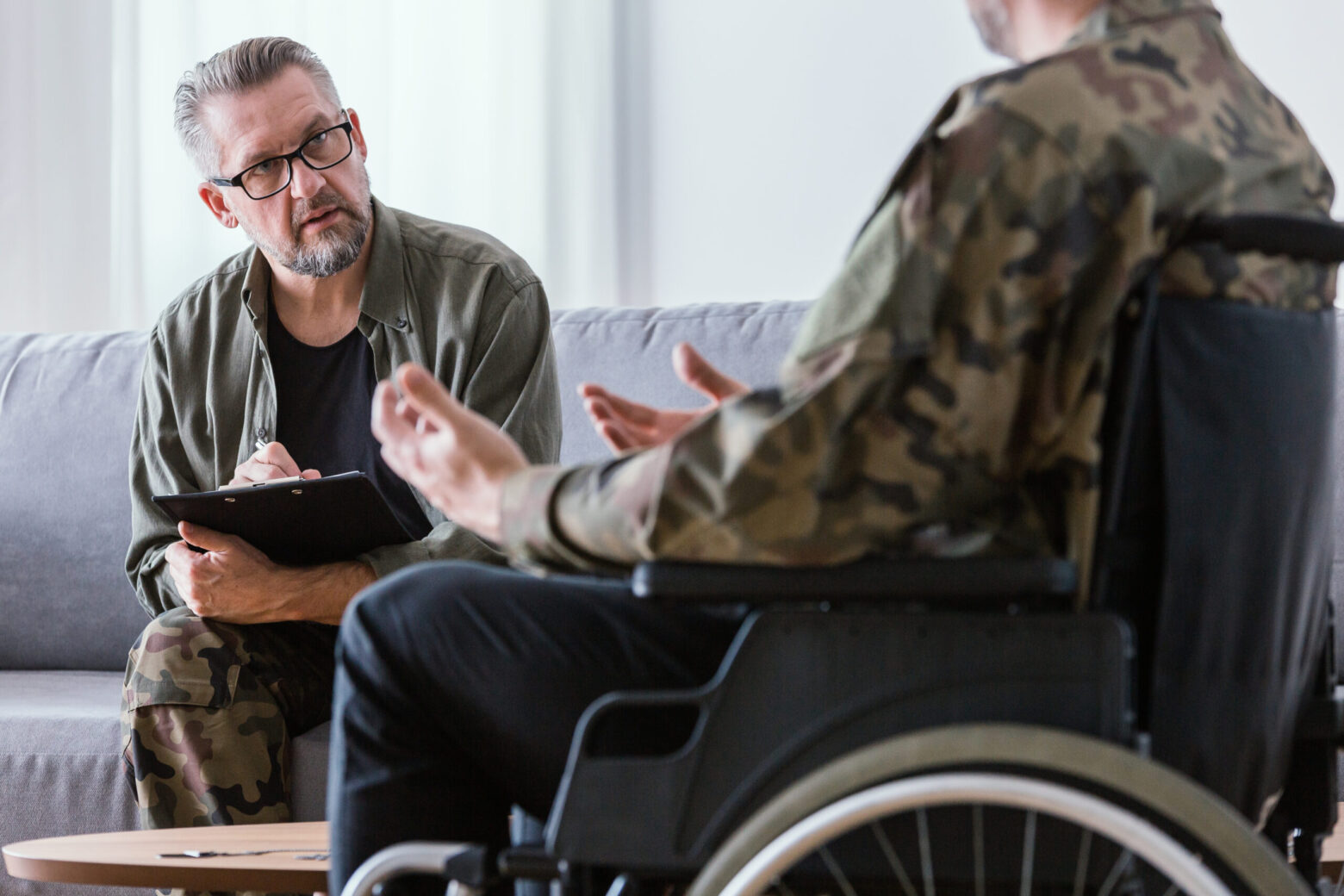
Mission Statement:
Our goal is to strengthen research and educational ties between the UCLA Department of Psychiatry and GLA VA Department of Mental Health, and to support translational research at UCLA and in the growing VA scientific community by facilitating communication between basic and patient-oriented researchers.
Description:
Efforts are currently underway to promote collaboration between the UCLA Department of Psychiatry led by Dr. Peter Whybrow and the Greater Los Angeles VA Department of Mental Health led by Dr. Barry Guze. Dr. Guze cites research development and education as central to his primary mission for GLA Mental Health under his leadership. Following this vision, GLA VA Mental Health has increased support for research activities and substantially expanded hiring of young faculty investigators. The UCLA residency programs have a long-standing, productive working relationship with the GLA VA (e.g., psychiatry residents spend half of their training time at the GLA VA hospital and outpatient clinics). Despite this close collaboration in the training of physicians, relationships between the scientific communities and research training programs at the two sites are strikingly less well developed.
One of the key research seminars in UCLA psychiatry residency education is the weekly seminar of the Psychiatry Residency Research Training Program. Department of Psychiatry faculty, residents, fellows and medical students are invited to attend this weekly seminar, where invited faculty and trainees share their research findings, lead scientific discussions, critically examine published reports, and assist the trainees with research career development activities. The proposed BRI Affinity Group, the UCLA-VA Bridges in Translational Mental Health, seeks to develop and integrate a similar forum at the GLA VA. The Affinity Group will facilitate scientific exchange and collaboration between these two research communities by establishing a rotating joint schedule, where the two groups take turns hosting the meeting. We view this as an opportunity to not only promote translational bridges between basic and clinical behavioral health science, but to develop research-focused bridges between the two affiliated campuses. This will enhance the inclusion of joint UCLA-VA faculty located on the VA campus and UCLA trainees working in VA wards and clinics who have had limited access to the UCLA forum.
Building on existing infrastructure and community commitment, the Bridges in Translational Mental Health BRI Affinity Group will be integrated into the UCLA Psychiatry Residency Research Training Program weekly seminar. Each month, one seminar will be devoted to the Bridges in Translational Mental Health BRI Affinity Group. This monthly seminar will be open to all trainees, BRI members and Psychiatry faculty at both the UCLA and VA campuses and will alternate between UCLA and VA sites to enable the broadest access. The existing, well-established UCLA site will continue to be led by Psychiatry Research Residency Training Program Director, David Krantz. Dr. Erika Nurmi, the Deputy Chief for Research for Mental Health at the GLA VA, will direct the group’s activities and seminar at the new VA-based forum. Additionally, Dr. Nurmi will coordinate the Bridges seminar programming.
Over a dozen newly recruited junior VA clinician-researchers who trained in the UCLA Research Residency Training Program now have dual appointments, with the majority of their time spent at the VA (highlighted above). This extensively trained, vibrant group of young investigators will form the core of the VA site of the Bridges in Translational Mental Health. These new, VA-based research faculty will be strongly encouraged to apply for BRI membership in the coming years. Similarly the increased access and visibility of cutting-edge translational research for other VA-based mental health care professionals, investigators and trainees will increase awareness of the BRI and nurture interest in translational research and application of basic science findings in clinical practice.
Faculty Participants
BRI Faculty:
Erika Nurmi, MD, PhD
David Krantz, MD, PhD
Nelson Freimer, MD
Edythe London, PhD
Michael Irwin, MD, PhD
James McCracken, MD
Peter Whybrow, MD
Joint VA-UCLA Research Faculty:
Barry Guze, MD
Steve Marder, MD
Michael Green, PhD
Ken Wells, MD, MPH
Bruce Kagan, MD, PhD
Junghee Lee, PhD
William Horan, PhD
Arthur Brody, MD, PhD
David Sultzer, MD
New Joint VA-UCLA Faculty:
Scott Fears, MD, PhD
Frank Sun, MD, PhD
Marc Heiser, MD, PhD
Walter Dunn, MD, PhD
Yvonne Yang, MD, PhD
Meredith Hannan, MD, PhD
Roya Ijadi Maghsoodi, MD, MSHS
Pushpa Raja, MD, MSHS
Smitta Patel, MD
Ian Cook, MD
Margaret Stuber, MD
Larissa Mooney, MD
Gerhard Hellemann, PhD
How to Join:
Coordinator:
Erika Nurmi, MD, PhD
Deputy Chief for Research
Department of Mental Health, Greater Los Angeles VA
Assistant Professor-in-Residence
UCLA Department of Psychiatry and Biobehavioral Sciences
UCLA Semel Institute
760 Westwood Plz, 48-256B
Los Angeles, CA 90095
310-206-5471
enurmi@mednet.ucla.edu

Mission and Goals:
The Circadian and Sleep Medicine Affinity Group at UCLA Medical Center consists of faculty, clinical and research fellows, staff research associates, medical residents, and students who share an interest in sleep and circadian rhythms. It is becoming increasing clear that robust daily rhythms of sleep & wake are essential to good health. A wide range of studies have demonstrated that disruption of the circadian system leads to a cluster of symptoms, including metabolic deficits, cardiovascular problems, immune dysfunction, difficulty sleeping and cognitive deficits. Many people, including patients with psychiatric and neurological diseases, exhibit disturbances in their daily sleep-wake cycle as part of their daily life. These people have difficulty sleeping at night and staying awake during the day, which has a profound impact on the quality of life for those not sleeping but also for their family members. Broadly speaking, members of this affinity group are focused on understanding the mechanisms underlying the disruptions in sleep/wake cycle and importantly the development of new interventions designed to stabilize these rhythms.
Affinity Group Participants:
Alon Y. Avidan, M.D., MPH
Gene D. Block, Ph.D.
Julienne Bower, Ph.D.
Jude Caroll, Ph.D.
Christopher S. Colwell, Ph.D.
Jeff Donlea, Ph.D.
Andrew Fuligni, Ph.D.
Cristina Ghiani, Ph.D.
Fernando Gomez-Pinilla, Ph.D.
Ron M. Harper, Ph.D.
Michael R. Irwin, M.D.
Shafali Jeste, M.D.
Rajesh Kumar, Ph.D.
Travis Longcore, Ph.D.
Paul Macey, Ph.D.
Anna Matynia, Ph.D.
Ketema Paul, Ph.D.
Gina Poe, Ph.D.
Alapakkam Sampath, Ph.D.
Jerry Siegel, Ph.D.
George Slavish, Ph.D.
Ron Szymusiak, Ph.D.
How to Join:
Christopher S. Colwell, Ph.D.
Department of Psychiatry and Biobehavioral Sciences
77-352 Semel Institute
Mail Code: 175919
Phone: 310-206-3973; Fax: 310-206-5060
Email: ccolwell@mednet.ucla.edu
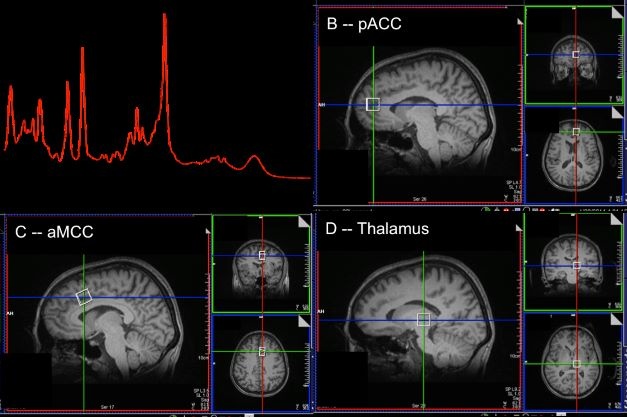
Mission and Goals:
MISSION STATEMENT: To promote the effectiveness of ongoing and proposed neuroscience and clinical investigations of humans and animals involving magnetic resonance spectroscopy (MRS) at the BRI, the Semel Institute, and other branches of the UCLA Neuroscience community through timely and well-appraised exchange of research methods, findings, interpretations, and theoretical models.
BACKGROUND: Magnetic resonance spectroscopy (MRS) is the oldest MRI-like neuroimaging modality. MRS measures the concentrations of biochemicals (“metabolites”) in the tissue volume scanned in the brain or other organ of an (in vivo or post-mortem) human or animal subject. MRS is non-invasive, non-destructive, can be performed on a regular clinical MRI scanner, and has no known deleterious side effects. MRS is a long established, but still evolving and highly productive neuroimaging modality. MRS research at UCLA stretches back over 30 years and important clinical applications of MRS (including assessment of brain tumors) were developed here. Recent and ongoing clinical studies involving MRS have been conducted at the Brain Mapping Center, the Staglin Center for Cognitive Neuroscience, and the Department of Radiological Sciences. These studies are advancing our understanding of brain mechanisms of psychiatric and neurologic disorders and their treatments, including treatment-resistant depression, tobacco use disorder, fetal alcohol syndrome, autism, schizophrenia, autistic spectrum disorder, alcohol use disorder, and others.
GOALS: The UCLA MRS Affinity Group is open to all interested faculty, staff, and students at the BRI, the Semel Institute, and other branches of the UCLA Neuroscience community. The Affinity Group meets in small-group format at UCLA 1-2 times per month throughout the year. Each meeting features a speaker lecturing on an MRS topic of his or her choice. Topics include sharing of methodology, presentation of original research findings, general reviews of key subject areas, or journal club reviews of salient publications. Each meeting includes a Q&A session with the goal of encouraging interaction between participants of all academic ranks.
MRS is an evolving neuroimaging discipline. Improved methods and novel findings are emerging all the time. As in most fields, publications typically lag 2-3 years or more behind the cutting edge. At the same time, the existing MRS literature is so vast that even experienced investigators fail to exploit it fully. A further goal of the MRS Affinity Group is to help members of the UCLA Neuroscience community meet these challenges,.
The MRS Affinity Group provides communal exchange of pre-publication and existing methods and findings among MRS stakeholders and enthusiasts and all wishing to learn at UCLA. With methods we are talking about highly specific items, the “Devil in the details”. Issues of acquisition volume prescription, co-processing with structural MRI, data file format, etc. Such little items impede research, and it is our business as investigators to get past them. When investigators meet in congress we, frequently find out that one of us has or knows about a solution. With findings we are talking about novel findings that may be relevant to cross-validation of our own work, attempts to replicate work of others, ideas for new proposals, etc. Hence, a final goal of the MRS Affinity Group is to contribute in practical ways to the core research process.
How to Join:
Joseph O’Neill, PhD
Division of Child & Adolescent Psychiatry
Phone: (310) 825-5709
Email: joneill@mednet.ucla.edu
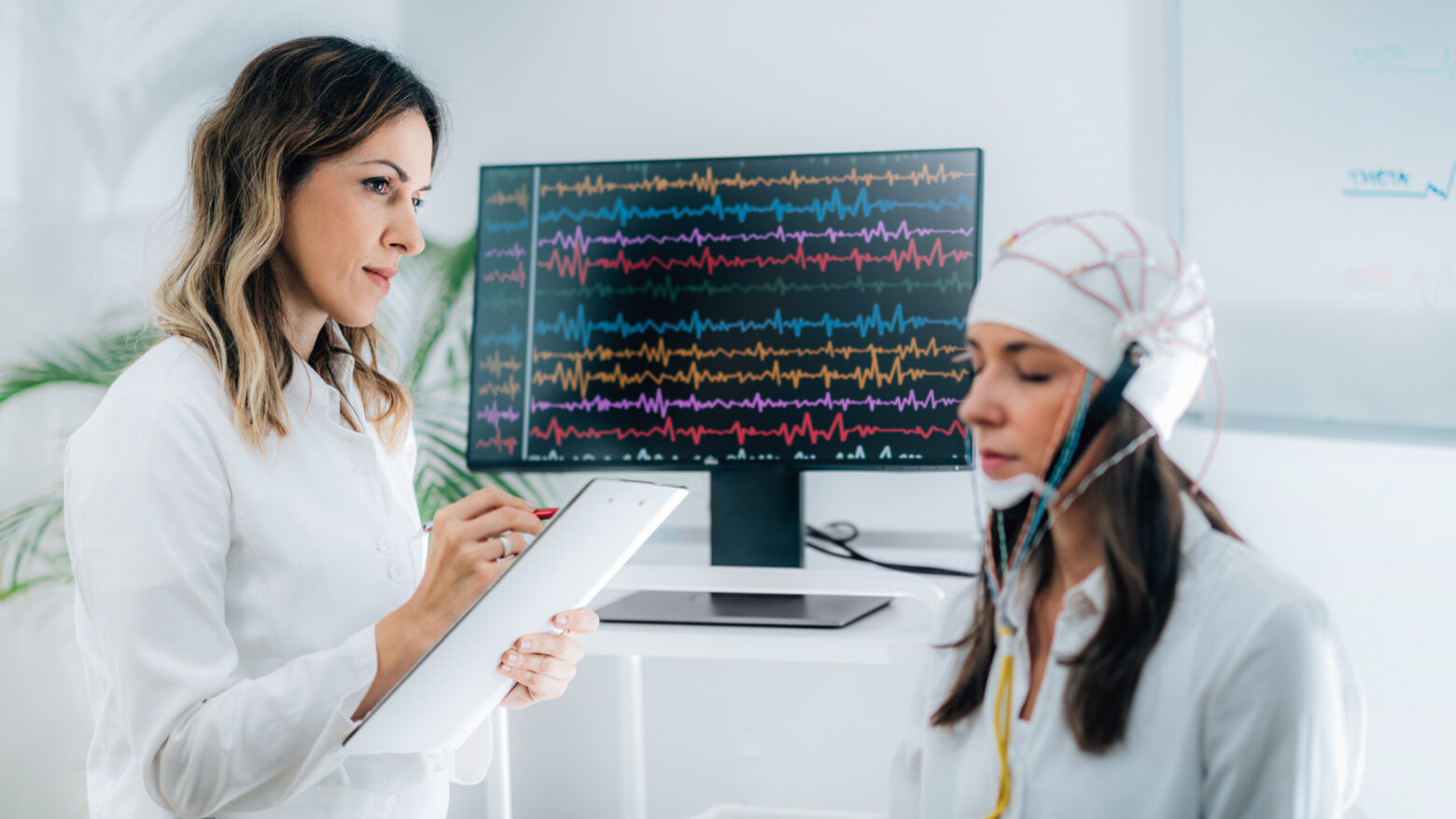
Mission and Goals:
The Computational Neuroscience Affinity group provides a forum for BRI-affiliated investigators actively involved in computational research to meet to exchange ideas, to inform each other of research developments in their labs, to get updated about the new developments in the field, and to promote interaction or collaboration among the labs. The goal of this affinity group is to try and to fill this void, to help promote a community of computational neuroscience researchers with a more vigorous interaction within the community at UCLA as well as a more active interaction with other computational neuroscience researchers in Southern California.
We plan to have one meeting per month. About half of these meetings will include a seminar given by an invited speaker from the local Southern California area, and about half of the meetings will involve presentation of a research project by one of the affinity group members. All presentations will be followed by discussion.
The presentations by invited speakers will serve to update our affinity group members about new advancements in the field, and to create connections with relevant researchers in neighboring universities. The presentations by the affinity group members will serve to inform the group about the research work of our colleagues, to provide opportunities to get valuable feedback, and opportunities for collaboration between labs.
Affinity Group Participants:
James Bisley, Ph.D.
Tad Blair, Ph.D.
Dean Buonomano, Ph.D.
Patricia Cheng, Ph.D.
Tom Chou, Ph.D.
Mark Cohen, Ph.D.
Jack Feldman, Ph.D.
Joaquin Fuster, M.D., Ph.D.
Keith Holyoak, Ph.D.
Zili Liu, Ph.D.
Hongjing Lu, Ph.D.
Uri Moaz, Ph.D.
Russell Poldrack, Ph.D.
Tom Otis, Ph.D.
Dario Ringach, Ph.D.
Stan Schein, M.D., Ph.D.
John Schlag, M.D.
Ladan Shams, Ph.D.
James Thomas, Ph.D.
Luminita Vese, Ph.D.
Stephanie White, Ph.D.
Alan Yuille, Ph.D.
How to Join:
Ladan Shams
Department of Psychology and Biobehavioral Sciences
7445B Franz Hall
Mail Code: 156304
Phone: 310-206-3630; FAX: 310-206-5895
Email: ladan@psych.ucla.edu
Brian Odegaard, PhD
Department of Psychology
1285 Franz Hall
Mail Code: 156304
Email: odegaard.brian@gmail.com
Megan Peters, PhD
Department of Psychology
7531 Franz Hall
Mail Code: 156304
Email: peters.megan@gmail.com
Mission and Goals:
Understanding how we make decisions has enormous welfare and policy implications,
in addition to being of great philosophical interest. Consequently, the scientific study of
decision making—in both healthy and disordered states—has attracted enduring
scholarly interest across a range of fields including psychology, economics, behavioral
ecology, and neuroscience.
This sustained interest in decision making, however, has not always translated to
interdisciplinary understanding. Many threads of decision making-relevant work have
evolved largely independently of each other in different fields despite shared questions
and common foundations. The goal of this affinity group is to bring diverse perspectives
on decision making to bear on the goal of understanding the brain computations that
underpin decisions. Our hope is to forge interdisciplinary links across departments,
graduate programs, and research groups at UCLA.
Affinity Group Participants:
Michele Basso, Ph.D.
Aaron Blaisdell, Ph.D.
Dan Blumstein, Ph.D.
Eugene Caruso, Ph.D.
Hakwan Lau, Ph.D.
Jay Lu, Ph.D.
Sotiris Masmanidis, Ph.D.
Peter Nonacs, Ph.D.
Ichiro Obara, Ph.D.
Kate Wassum, Ph.D.
How to Join:
Coordinator: Andrew Wikenheiser
Email: amwikenheiser@psych.ucla.edu
Or
Co-coordinator: Alicia Izquierdo
Email: aizquie@psych.ucla.edu
Mission and Goals:
This affinity group brings together researchers, and clinical practitioners, across domains who
share an interest in topics in electrical measurements of large-scale brain dynamics, namely field potentials, recorded by methods such as electroencephalography, magnetoencephalography, electrocorticograms, intracortical local field potential recordings, and action potentials. Topics of relevance include source imaging, multi-modal recordings, functional and causal connectivity methods, oscillations, computational modeling, disease diagnostics, brain-computer interfaces, among others, at the micro and macro levels of analysis. Its mission, to promote critical analyses of recent literature on these topics, provide a central forum for exchange of ideas and education of students, and to foster novel collaborations that span disciplines.
How to Join:
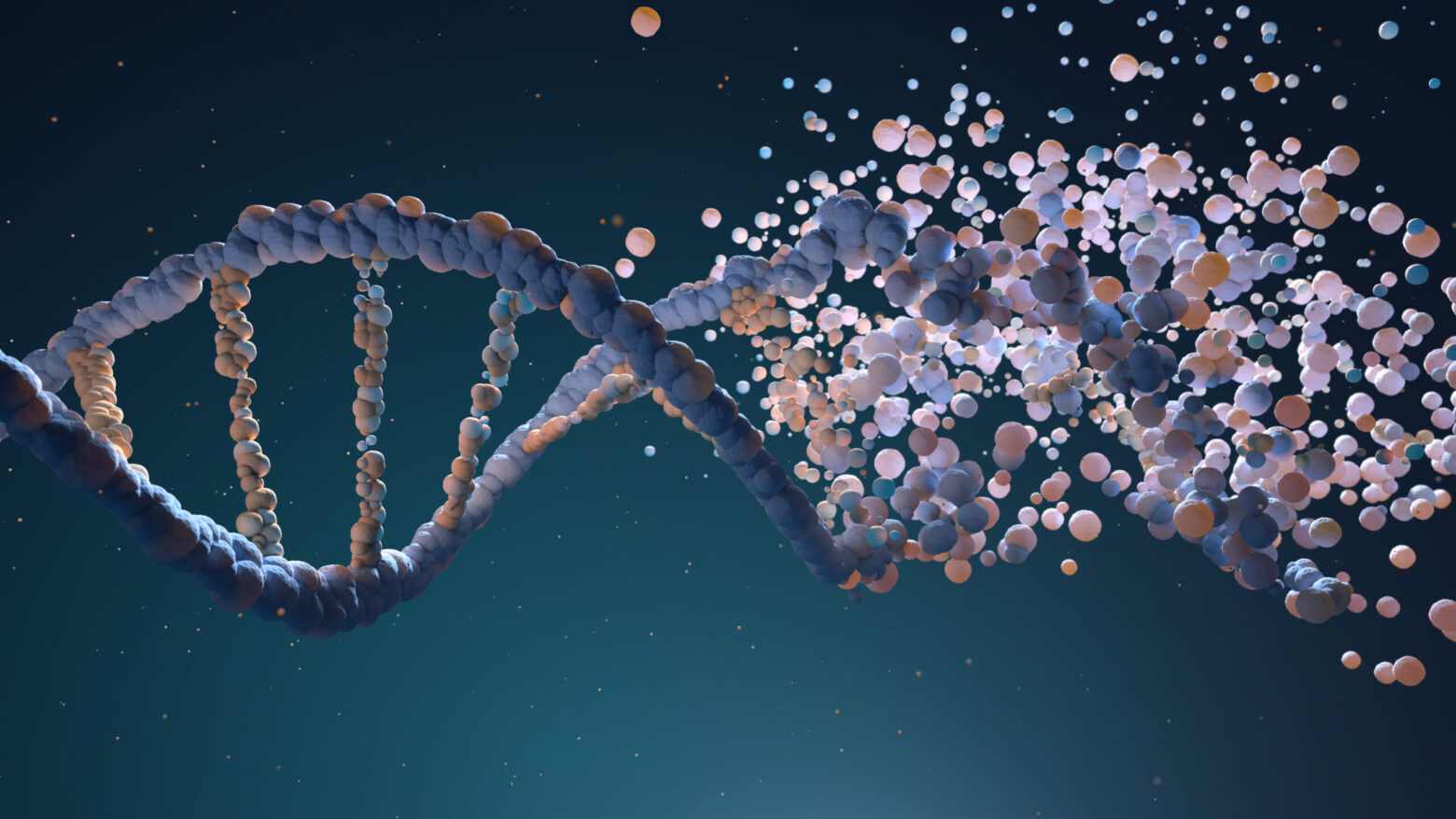
Mission and Goals:
Rapid advancements in genome editing technology such as the CRISPR/Cas9 system have revolutionized the way to make transgenic knockout/knock-in mice in brain research. With such technology, it is feasible to generate the mutant mice with targeted genetic mutations within 2-3 months to study gene function or model human disease in neural stem cells and pluripotent stem cells. To promote the application of the CRISPR technology in ncuroscience research, we propose to initiate this new Affinity Group in the format of group meetings and workshops.
Coordinators:
Guoping Fan, PhD (Leader)
Professor, Human Genetics
Gonda Research Building
695 Charles Young Dr., S
Mail Code: 708822
Phone:310-267-0439; FAX: 310-794-5446
Email: gfan@mednet.ucla.edu
Web: http://labs.genetics.ucla.edu/fan/
William Yang, MD, PhD (Co-Leader)
Professor, Psychiatry and Biobehavioral Sciences
Gonda Research Building
695 Charles Young Dr., S
Mail Code: 176122
Phone: 310-267-2761
Email: xwyang@mednet.ucla.edu
Web: http://yanglab.npih.ucla.edu/
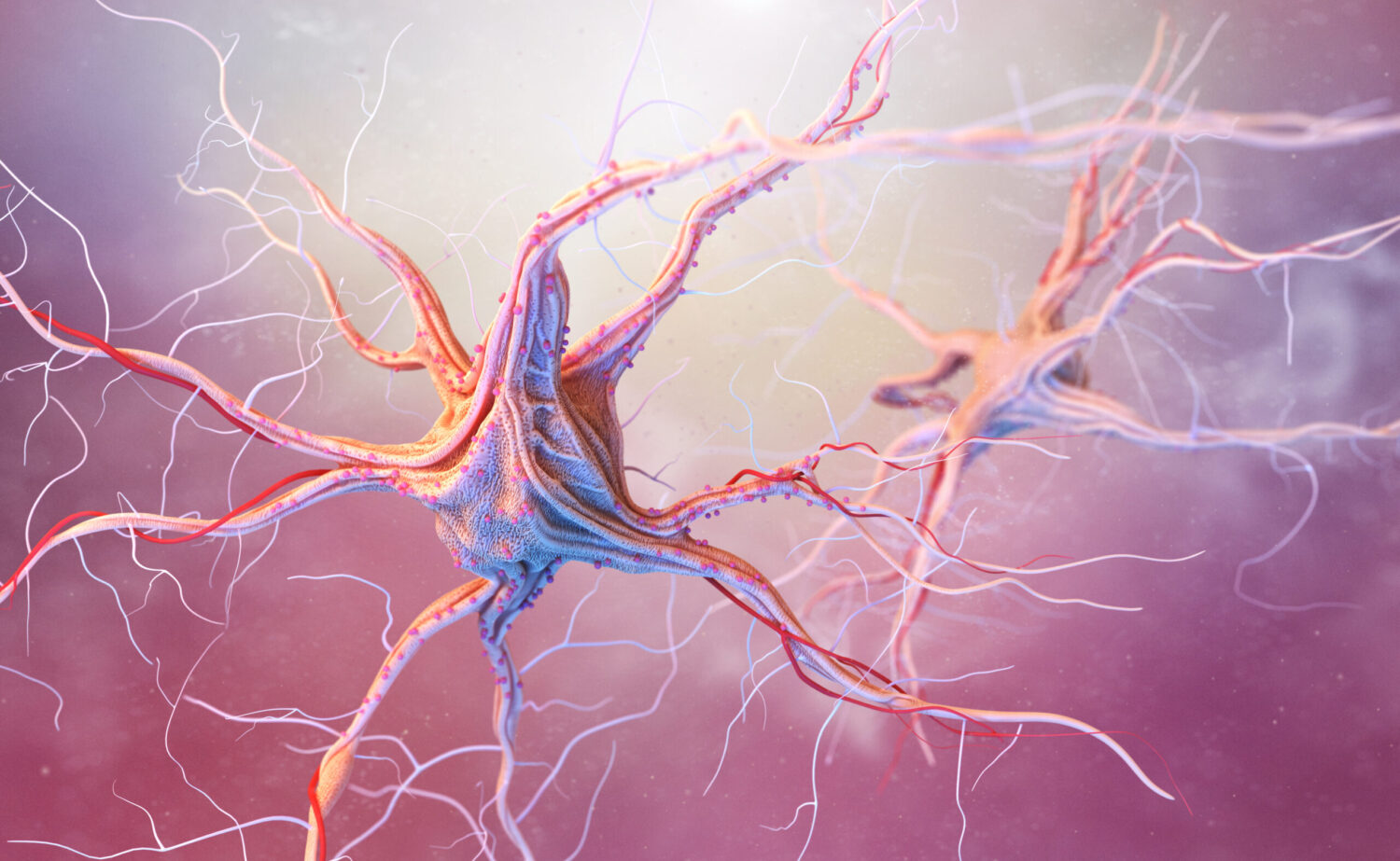
Mission and Goals:
The Glial Biology Affinity Group will meet once per month to discuss the biology and physiology of astrocytes. The main focus of these meetings will be the active roles of astrocytes at synapses and in neuronal networks both in the healthy nervous system as well as during and after injury.
Overall we seek to provide a lively and dynamic forum to encourage progress in astrocyte research at UCLA. The format of the meetings will be in depth presentation of data and papers. Participating faculty, students and postdocs will all be expected to present at these meetings.
How to Join:
Michael Sofroniew, Ph.D.
Department of Neurobiology
501 NRB
Mail Code: 176318
Phone: 310-794-4944; Fax: 310-825-2224
Email: sofroniew@mednet.ucla.edu
or
Ye Zhang, Ph.D.
Department of Psychiatry & Behavioral Sciences
Admin Code: 1655
Phone: 310-825-1973
Email: yezhang@ucla.edu
Mission and Goals:
The goal of HPASS is to enhance interactions between those that talk about science (philosophers, sociologists, and historians of science) and those that do science (bench scientists), hence the inclusion of the word science in the group’s name.
An underlying principle of HPASS is that if history and philosophy of science is to be relevant to science itself, those talking about science should understand how science is done in practice. Equally important is the need for scientists to develop a deeper understanding of the philosophical foundations underlying their practice, in particular of the epistemological questions that must be answered if science itself is to fulfill one of its perceived missions, namely understanding the natural world. Science is an inherently philosophical activity, which was once called natural philosophy. In fact, many universities still award Doctor of Philosophy (D.Phil.) degrees rather than the more generic Ph.D. The philosophical aspects of science are frequently neglected in a world of hyper-specialization and attention to practical utility. This is another reason HPASS seeks to stimulate interest in philosophical reflection among practicing
scientists from all disciplines.
The HPASS reading group meets monthly, at which time papers at the interface between HPS and science practice are discussed. At each 60 minute meeting, a moderator, or an invited discussant, briefly comments on the paper, after which the entire group participates in a general discussion. HPASS also has invited speakers who present their latest work and participate in in depth discussions with the group.
The goal of the discussion is to provide new perspectives to participants on HPASS, perspectives that hopefully will stimulate new modes of thought and new approaches in each participant’s own work. Everyone is welcome in HPASS, but we expect that those who will benefit the most will be graduate students, postdoctoral fellows, and faculty in the humanities and sciences, especially those who are interested in exploring pluralistic, integrative approaches in their work.
How to Join:
David B. Teplow, Ph.D.
Research Professor
Professor Emeritus
Editor, Progress in Molecular Biology and Translational Science
Department of Neurology
David Geffen School of Medicine at UCLA
Neuroscience Research Building, Room 445
635 Charles E. Young Drive South
Los Angeles, CA 90095-7334
(310) 206-2030 (Voice)
(310) 206-1700 (Fax)
dteplow@mednet.ucla.edu
http://teplowlab.neurology.ucla.edu/
Sherri Roush
Email: roush@ucla.edu
Eric Scerri
Email: scerri@chem.ucla.edu
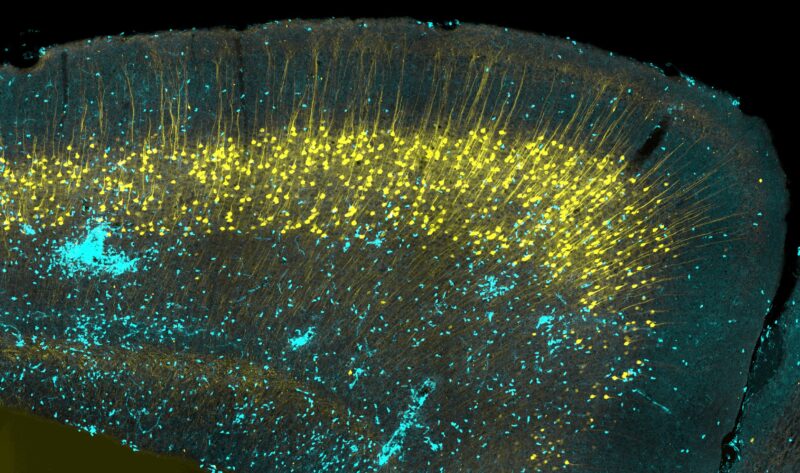
Mission and Goals:
The ultimate goal is to more fully understand the role of the immune system in CNS disease and behavior, and how the immune system can be manipulated to improve disease outcomes. The affinity group is intended to provide a venue to expose to other scientist ongoing and new projects at UCLA in this area, to foster collaborations, and to bring in outside speakers. An eventual goal of the group is to develop multi-investigator and training grants, establish cores, and develop a southern California network. A collateral benefit of this group is that it will provide better training in immunology for students, residents, postdoctoral fellows and faculty at UCLA.
Immunology and neuroscience are both highly complex disciplines, with many subspecialties, and have only occasionally been brought closely together, such as in the study of multiple sclerosis. Yet, the importance of the immune system is becoming increasingly realized in nearly all areas of neuroscience, including stroke, CNS trauma, neurodegenerative and white matter diseases, brain tumors, and neural cell transplantation. Moreover, mounting evidence suggests that the immune system plays roles in autism, schizophrenia, cognition, sleep, circadian rhythms, and the reward system. Thus, several investigators at UCLA have expressed interest in gaining the tools to understand how the immune system impacts the particular processes they study. Because the links between the immune system and many problems in neuroscience are only beginning to be explored, it will be beneficial for scientists to come together and exchange ideas, and develop collaborations.
This group will coordinate with other groups at UCLA, including the Cousins Center, Neural Repair Group, Mental Retardation Research Center, and the Multiple Sclerosis Program, and Centers for Parkinson’s, Alzheimer’s and Autism. We will also coordinate and interact with interested scientists at Cedars Sinai. Current plans are for the group to meet twice a month, once as a part of the Neural Repair group, and once separately. The “separate” meetings will be very informal, and may include multiple short talks by investigators or full seminars. We plan to hold one half day event, in which all investigators will be encouraged to display posters, and will also include one invited outside speaker.
Affinity Group Participants:
James Waschek, Ph.D., Group Leader
Suraj Bhat, Ph.D.
Anthony Campagnoni, Ph.D.
Thomas Carmichael, M.D., Ph.D.
Marie-Francoise Chesselet, M.D., Ph.D.
Chris Colwell, Ph.D.
Jean de Vellis, Ph.D.
Chris Evans, Ph.D.
David Glanzman, Ph.D.
Fernando Gomez-Pinilla, Ph.D.
Ron Harper, Ph.D.
Shuxin Hu, M.D., Ph.D.
Michael Irwin, M.D.
Dan Kaufman, Ph.D.
Linda Liau, M.D., Ph.D., MBA
Emeran Mayer, M.D., Ph.D.
Charalabos Pothoulakis, M.D.
Robert Prins, Ph.D.
Andre Shaner, M.D.
Nancy Sicotte, M.D.
Jerry Siegel, Ph.D.
Daniel Silverman, M.D., Ph.D.
Michael Sofroniew, M.D., Ph.D.
Catia Sternini, M.D., Ph.D.
Bruce Teter, Ph.D.
Seema Tiwari-Woodruff, Ph.D.
Rhonda Voskuhl, M.D.
Coordinator:
James A. Waschek, PhD
345 NRB
Mail Code: 733222
Phone: 310-825-0547
Email: jwaschek@mednet.ucla.edu
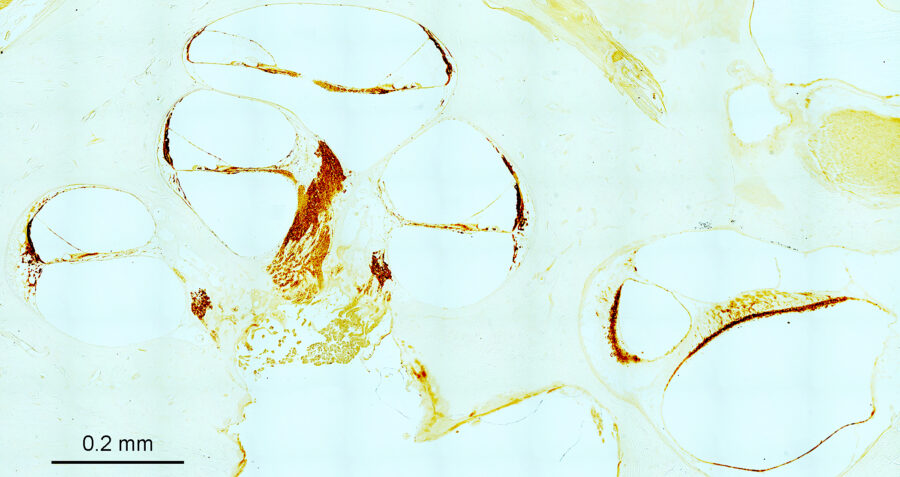
Mission and Goals:
The senses of hearing and balance play crucial roles in our lives as they help us orient ourselves in space, provide us with crucial information for locating objects and events, and provide us with a means of communicating with each other. The first step in the processing of auditory and vestibular information occurs in the inner ear, an organ whose functioning is largely not understood to this day. There are a number of research groups in UCLA, in a wide range of departments, studying different aspects of the inner ear, from mechanics, biophysics, cellular biology, to more clinical applications. The affinity group provides a chance for us to meet regularly and exchange ideas with scientist from very different backgrounds. We meet for a monthly journal club, at which members present on their recent research; we also invite outside speakers to give seminars on related topics.
Affinity Group Participants:
Dolores Bozovic, Ph.D.
Alan Grinnell, Ph.D.
Larry F. Hofman, Ph.D.
Vincente Honrubia, M.D., D.M.Sc
Ivan Lopez, Ph.D.
Walter Metzner, Ph.D.
Peter Narins, Ph.D.
Felix E. Schweizer, Ph.D.
David Strelioff, Ph.D.
Postdocs:
Katerina Oikomomou
Bas Menderick
Yuki Quionoes
Graduate Students:
Victoria Arch
Dylan Hirsch-Shell
Rebecca Hu
Albert Kao
Erika Nelson
Yuki Quinones
Gina Rinetti
Elliott Strimbu
Diane Su
Undergraduates:
Tobias Falzone
Rashid Williams-Garcia
Xochitl Williams-Garcia
Coordinator:
Doris Bozovic
Department of Physics and Astronomy
3-112 Knudsen
Mail Code: 1547005
Phone: 310-825-6176
Email: bozovic@physics.ucla.edu
Mission and Goals:
The mission of the Intellectual and Developmental Disabilities Research Affinity Group is to provide an environment to discuss multidisciplinary research into the causes of intellectual and developmental disabilities, avenues to translate these findings into effective treatments for IDDs, and to disseminate these findings to the scientific, clinical, and stakeholder communities in a respectful and mutually informative way. The interests of faculty and trainees are broad and encompass different fields including neurodevelopment, genetics and genomics, cellular physiology, circadian rhythms, brain imaging and clinical interventions, among others.
The Intellectual and Developmental Disabilities Research Affinity Group will meet on the third Monday of each month where investigators and trainees will present work in progress on a related topic. A unique aspect will be the inclusion of investigators that range from “bench to bedside” to foment dialogue and multidisciplinary collaborations. Once per quarter, the Group will hold joint virtual meetings with Children’s Hospital, Los Angeles to build upon local partnerships and clinical expertise. The seminar series will function as a central hub to disseminate and discuss research carried out by the IDDRC, providing opportunities for cross-disciplinary collaborations and development of Program grants.
Affinity Group Participants:
Anne M. Andrews
Aracely Espinosa
Amanda Gulsrud
Bill Lowry
Ben Novitch
Samantha Butler
Carrie Bearden
Carlos Cepeda
Christopher Colwell
Chris Evans
Cristina Ghiani
Catherine Lord
Carlos Portera-Cailliau
Derek Wong
Daniel H. Geschwind
David Krantz
Elizabeth Laugeson
Guoping Fan
Gina Poe
Gerald Lipshutz
Gary W. Mathern
Harley Kornblum
Harry Vinters
Ina Wanner
James T. McCracken
Joyce Wu
Julian Antonio Martinez-Agosto
James Waschek
Julia W. Chang
Connie Kasari
Ketema Paul
Luis de la Torre-Ubieta
Mirella Dapretto
Michael Levine
Mary O’Connor
Martina Hildegard Wiedau-Pazos
Nelson Freimer
Neil G. Harris
Nigel T. Maidment
Peyman Golshani
Paul E. Micevych
Patricia E. Phelps
Peter Szilagy
Patricia Walshaw
Robert Asarnow
Ranmal Aloka Samarasinghe
Rhonda R. Voskuhl
Stephanie White
Susan Bookheimer
Sherin U. Devaskar
Alcino Silva
Sandra K. Loo
Danile Snelson
Michael V. Sofroniew
Wayne Grody
X. William Yang
Ye Zhang
Shulamite A. Green
Adriana Galvan
Rujuta Bhatt
Arthur Arnold
Leanna Hernandez
Allan McKenzie-Graham
Amjad Askary
Naoki Kaneko
Gil Hoftman
Jimmy Hu
Suhas G. Kallapur
How to Join:
Luis de la Torre-Ubieta, Ph.D.
Department of Psychiatry and Biobehavioral Sciences
303 NRB
Mail Code: 176122
Phone: 310 267-5540
Email: ldelatorreubieta@mednet.ucla.edu
Harley Kornblum, M.D., Ph.D.
Department of Psychiatry and Biobehavioral Sciences
Department of Molecular and Medical Pharmacology
375D NRB
Mail Code: 733222
Email: hkornblum@mednet.ucla.edu
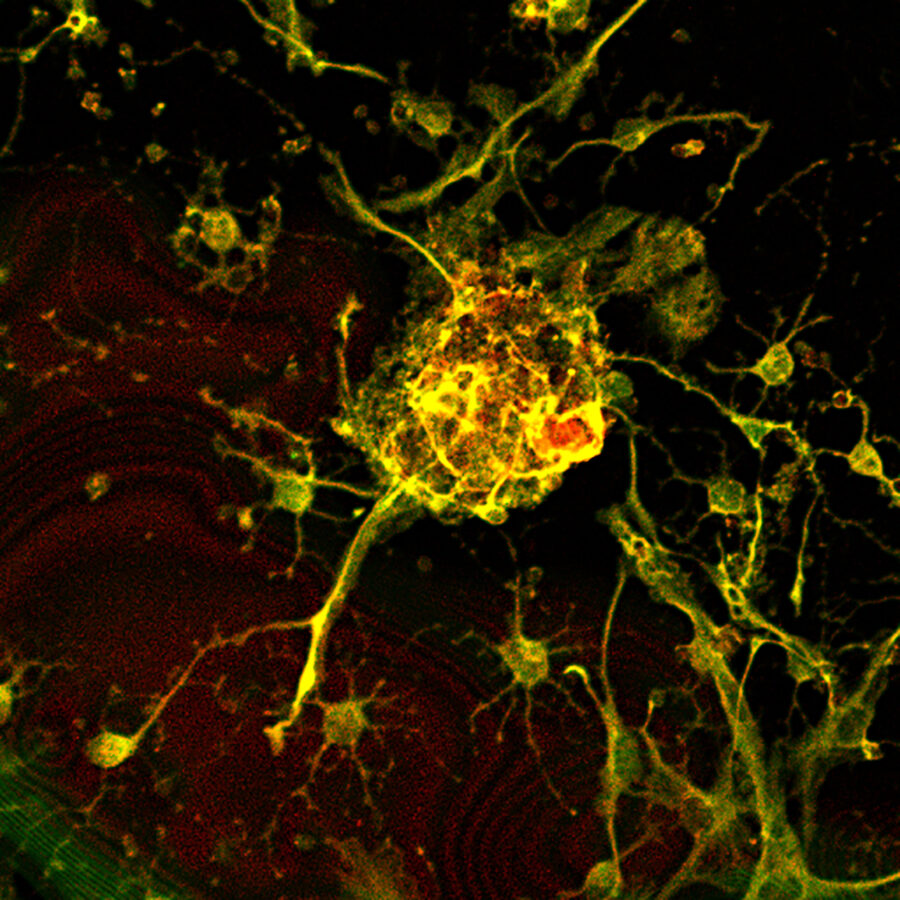
Mission and Goals:
The Laboratory of Neuroendocrinology (LNE) is a unit of the UCLA Brain Research Institute comprising 15 faculty laboratories with a common interest in neuroendocrinology, sex differences, and reproduction The LNE fosters education and collaborative research in neuroendocrinology and sex differences, especially in areas concerning reproduction and disease. The activities of the LNE include graduate and undergraduate courses in neuroendocrinology, the weekly brown-bag seminar on current topics in neuroendocrinology, active research collaboration among labs, opportunities for students at all levels, and the annual Charles H. Sawyer lectureship in neuroendocrinology. This brings world renowned senior investigators providing an opportunity for trainees to interact with leading neuroendocrinologists.
Research of the faculty spans all analytical levels, from the molecular to the behavioral. Although the main focus is on fundamental processes in neuroendocrinology, faculty are also involved in direct analysis of human disease and clinical trials to develop new neuroendocrine therapies. Research interests include sex determination and sexual differentiation, hormonal regulation of brain function, sex differences in disease, circadian rhythms, neural regulation of gonadal and adrenal function, glial neurobiology, stress, aging, neuroendocrine immunology, molecular genetics of the sex chromosomes and connectomics.
How to Join:
Catherine Weston
CWeston@mednet.ucla.edu
Or
Paul Micevych, Ph.D.
pmicevych@mednet.ucla.edu
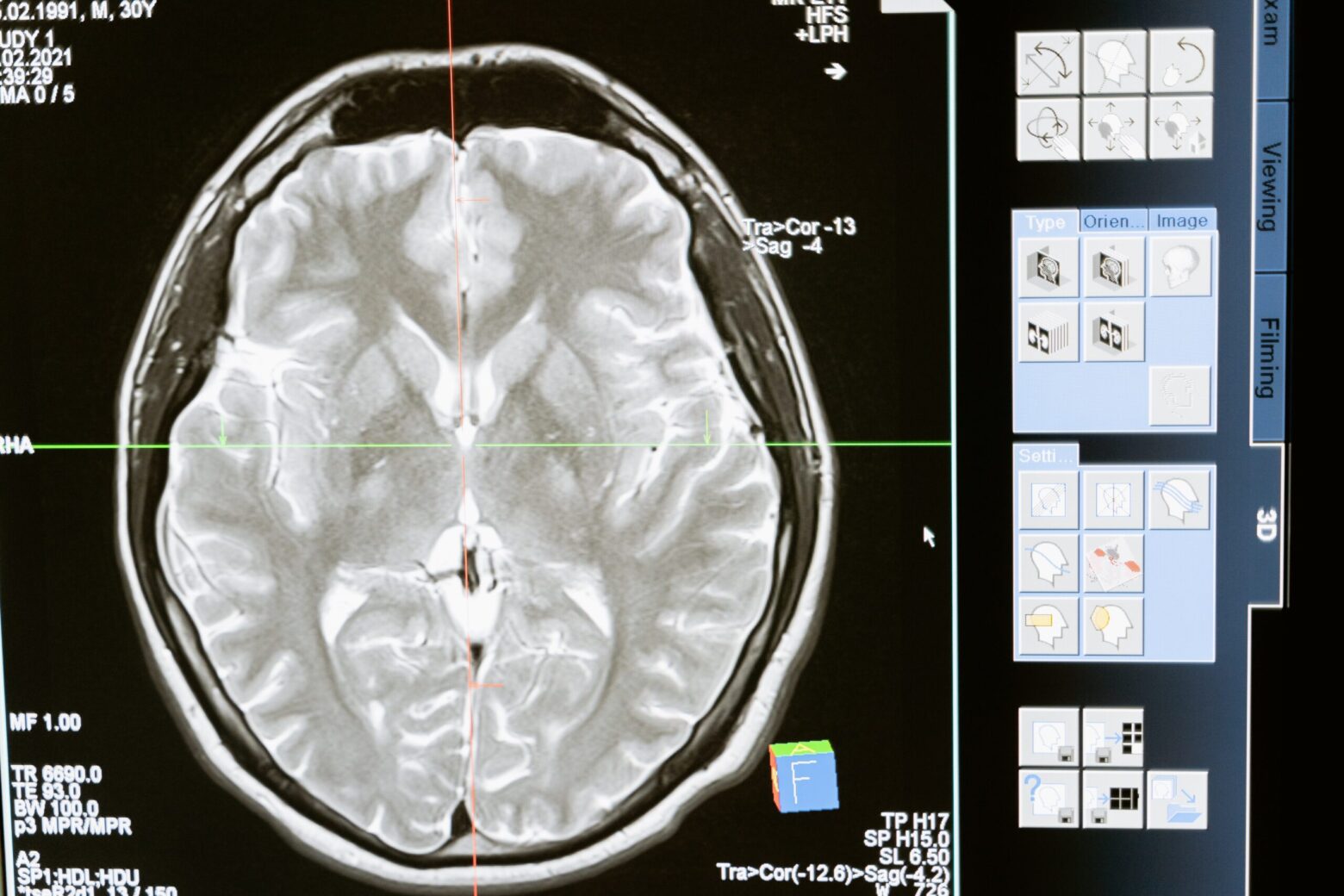
Mission Statement and Goals:
Our mission is to bring the UCLA neuroimaging community together to discuss the field’s most recent findings and methodological developments. Our emphasis is on functional magnetic resonance imaging (MRI), structural MRI, diffusion tensor imaging (DTI), magnetic resonance spectroscopy (MRS), positron emission tomography (PET) and near-infrared spectroscopy (NIRS) in both humans and animals. We aim to ensure that neuroimaging researchers at all levels of training have the opportunity to learn and teach within the community. We accomplish these goals by hosting bi-monthly meetings throughout the academic year. These meetings take one of three formats on an alternating schedule: member-led article presentations and discussion, round-table forums focused on each member’s current research and faculty-led didactic sessions with an emphasis on best practices in neuroimaging research.
Description of Program:
We are an expansion of the Neuroimaging Journal Club, a course that has been successfully student-run for the past 6 years, into an official affinity group. As an affinity group, we plan to have 5 meetings per quarter. In journal-club style meetings, a trainee (graduate student or post-doc) presents a recently published neuroimaging-focused, peer-reviewed paper; this is followed by a group discussion that critically evaluates the design, methods and conclusions of the article. In data presentations, a trainee presents their current unpublished research and the group provides critical feedback with the hope of strengthening such projects for publication. These informal presentations not only allow researchers to gain feedback on their work, but also serve to introduce other members to new research questions, analysis techniques, and the personnel capable of providing methodological mentorship. Didactic sessions provide an in-depth introduction to a cutting-edge research method, including how to practically implement such a method in one’s own research. Techniques which are covered include, but are not limited to connectivity modeling, graph theoretical analysis, multivariate pattern analysis and multi-model data fusion.
Affinity Group Participants:
Faculty:
Ariana Anderson, Ph.D.
Carrie Bearden, Ph.D.
Susan Bookheimer, Ph.D.
Ali Burggren, Ph.D.
Mirella Dapretto, Ph.D.
Pamela Douglas, Ph.D.
Jamie Feusner, M.D.
Dara Ghahremani, Ph.D.
Edythe London, Ph.D.
Agatha Lenartowicz, Ph.D.
Greg Miller, Ph.D.
Katherine Narr, Ph.D.
Joseph O’Neill, Ph.D.
Jesse Rissman, Ph.D.
Patty Walshaw, Ph.D.
Postdoctoral Scholars:
Zahra M. Aghajan
Omar Al-Hashimi
Milky Kohno
David Kronemeyer
Jessica Lake
Yanhui Liao
Angelica Morales
Teena Moody
Leo Moore
Jean-Baptiste Pochon
Evangelia Tsolaki
Megha Vasavada
Katie Young
Graduate Students:
Morgan Bartholomew
Jeff Chiang
Chris Ching
Tiffany Chow
Nicole Desforges
John Dell’Italia
Natalie DeShelter
Joel Frolich
Tessa Harrison
Leanna Hernandez
Rachel Jonas
Micah Johnson
Katherine Lawrence
Natalia Lee
Amy Lin
Janelle Liu
Cassie Meyer
Tara Patterson
Nicco Reggente
Tawny Tsang
Don Vaughn
Andrew Westphal
Amy Zheng
SRAs:
Hilary Bowman
Stephanie Njau
Peter Schuette
Michelle Tran
Past Participants:
Adriana Galván
Adriana Méndez Leal
Akila Kadambi
Amanda Baker
Amanda Guyer
Andrew Fuligni
Angel Wong
Ben Rosenberg
Bianca Dang
Bridget Callaghan
Carrie Bearden
Casey Jayner
Catherine Walsh
Chris Ching
Cody Cushing
Crystal Johnson
Dara Ghahremani
David Clewett
Emily Wood
Emma Smith
Evangelia C. Tsolaki
Genevieve Patterson
Hemal Semwal
Huan Wang
Ian Heimbuch
Idan Blank
Ivanka Savic-Berglund
Jamie Feusner
Janelle Liu
Jean-Baptiste Pochon
Jeffery Schwartz
Jennifer Silvers
Jesse Rissman
Jessica Uy
Jiwon Jung
Joāo Gaussi Moreira
Jonathan Lee
Josh Cain
Julia Schorn
Juliana Corlier
Kaitlin Cummings
Karina Lopez
Katherine Lawrence
Katy Cross
Kevin Tan
Kuan-Ting Chen
Laura Hazlett
Lauren Wagner
Leanna Hernandez
Leonardo Dionisio
Maira Karan
Marco Iacoboni
Mark Straccia
Martin Safrin
Mary Vitello
Melis Cakar
Micah Johnson
Mikhail Melnik
Mirella Dapretto
Monica Polczynska
Mouslim Cherkaoui
Myra Larson
Namita Tanya Padgaonkar
Nana Okada
Natalie Rotstein
Natalie Saragosa-Harris
Norman Spivak
Pamela Douglas
Razi Sahi
Ronald Ly
Samantha Walters
Sarah Chang
Steve Cramer
Stuary Murray
Talia Oughourlian
Teena Moody
Tyler Wishard
Wesley Kerr
Xiaoqian Mapsy
Yeun Kim
Zoe Guttman
How to Join:
Jesse A. Rissman, Ph.D
Associate Professor, Department of Psychology and Behavioral Sciences
6639 Franz Hall
Mail Code: 156304
Phone: 310-825-4084; Fax: 310-206-5895
Email: rissman@psych.ucla.edu
Jamie D. Feusner, Ph.D
Psychiatry and Biobehavioral Science
300 Med. Plaza, Room 2200
Mail Code: 696824
Phone: 310-206-4951
Email: jfeusner@mednet.ucla.edu
Martin Monti, Ph.D
Assistant Professor, Department of Psychology and Biobehavioral Sciences
7461E Franz Hall
Mail Code: 156304
Phone: 310-825-8546
Email: monti@psych.ucla.edu
Graduate Student Coordinators:
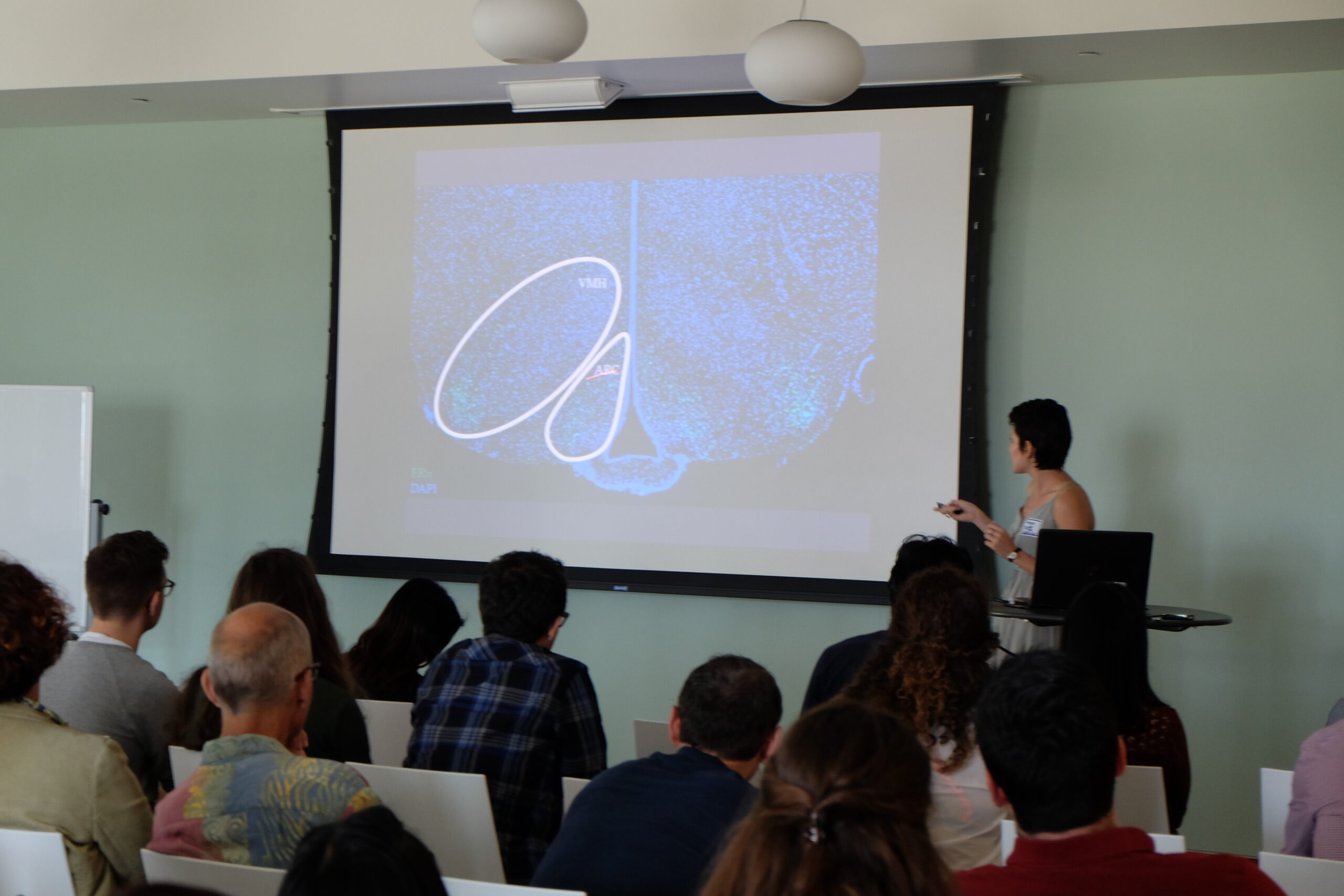
Mission Statement and Goals:
The Neuroscience and Educational Learning Sciences Affinity Group aims to develop a better understanding of the factors that play a part in the formation of conceptual structures that make optimal use of the neural resources available and permit effective transfer of knowledge to new domains in a pedagogical setting. Traditionally, learning science has involved large amounts of listening to lectures and reading texts. That is, science classrooms often place students in a passive role and have placed a premium on the auditory modality. Pedagogical and technological advances over the last three decades have made it possible to engage learners in more active roles of inquiry, modeling, and knowledge construction. These new inquiry oriented techniques are often coupled with computer simulations, animations, visualizations and other on-line learning tools that engage the visual modality, augmenting listening and reading with seeing and interacting.
Our affinity group invites eminent researchers in neuroscience, cognitive science, and learning sciences who have made significant contributions to embodied learning, participatory simulations, and multimodal information processing at different levels. It provides a rich intellectual environment for the cross-disciplinary training of grad students from Education and Neuroscience. Building on recent work on embodied and multimodal information processing, we aim to develop effective interventions for optimizing concept formation and conceptual integration.
Background:
Science education has made significant advances over the last three decades. However, learning outcomes have been modest – especially for minority populations – and international comparisons show the US losing ground. Additionally, reports show that there is a decline in interest in pursuing careers and advanced degrees in science. While there are many systemic and institutional challenges that contribute to our slow progress, one must consider that the most likely reason for our persistent difficulties in teaching science and fostering an interest in science careers is the nature of the learning experiences we provide our students and the limits of our current instructional practices. Neuroscience can play a central role in providing an explicit and empirically grounded rationale for a change of direction, by advancing our understanding of the neural underpinnings of effective pedagogical learning.
Affinity Group Participants:
Dor Abrahamson, Ph.D.
Erik Bucy, Ph.D.
Noel Enyedy, Ph.D.
Marco Iacoboni, M.D., Ph.D.
Ricardo Nemirovsky, Ph.D.
Francis Steen, Ph.D.
Mark Turner
Coordinator:
Marco Iacoboni, M.D., Ph.D.
Department of Psyciatry and Biobehavioral Sciences
105 Brain Mapping Center
Mail Code: 708522
Phone: 310-206-3992
Email: iacoboni@ucla.edu
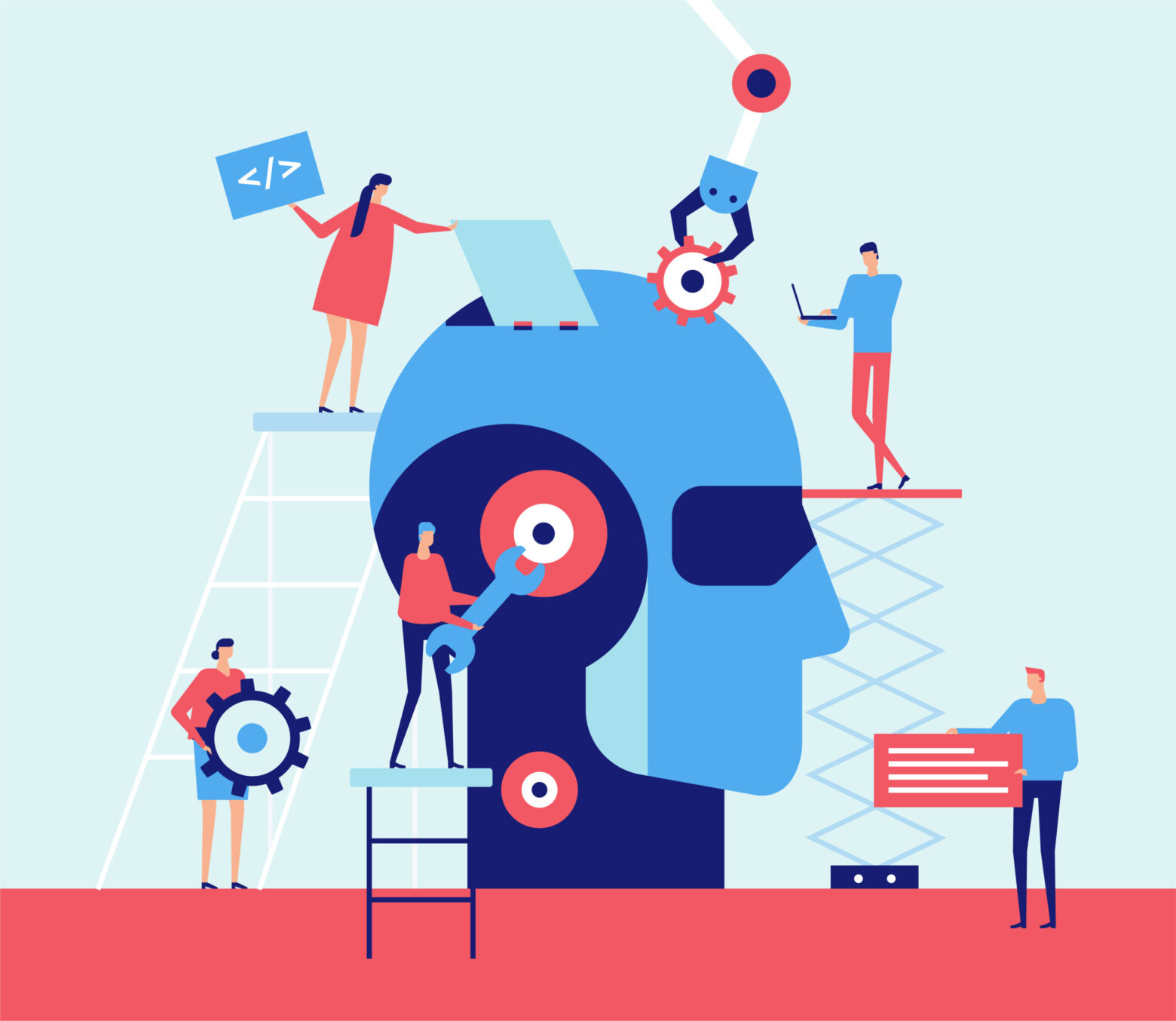
Mission Statement and Goals:
Affinity Group Participants:
How to Join:
Website: https://www.neurocommucla.com/
Please email: neurocommaffinitygroup@gmail.com
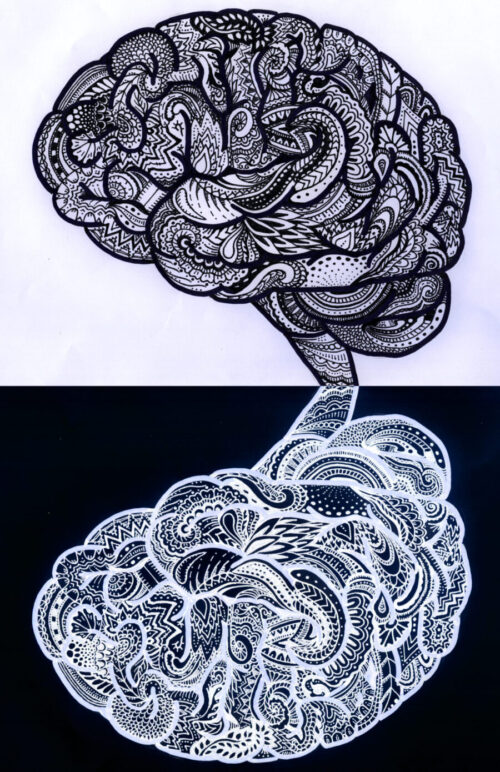
Mission and Goals:
The Neuroscience History Archives (NHA) promotes the advancement and diffusion of knowledge about the history of neuroscience. Through the identification, collection, and preservation of primary source material of twentieth century American neuroscience, the NHA seeks to create a documentary heritage for future generations that will represent the ideas, actions, and accomplishments of the discipline’s antecedent practitioners.
Activities:
The NHA identifies and preserves the papers of living neuroscientists and records of their professional organizations; assists neuroscientists in finding appropriate repositories for their papers; promotes access to this documentary evidence through the preparation of finding aids and other guides; facilitates scholarly use of the collections; and carries out research and education in the history of neuroscience.
History
As one of the first archives to focus solely on a biomedical discipline, the Neuroscience History Archives was established in 1980 at the UCLA Brain Research Institute in response to the scholarly need for documentation of American neuroscience in the twentieth century. With modest support from the National Library of Medicine and the Alfred P. Sloan Foundation, reference resources were complemented by primary materials such as oral histories, personal papers, and organizational records. The work continues, with income from the Frances O’Malley Trust, under the oversight of and in collaboration with the Louise M. Darling Biomedical Library, the Brain Research Institute, and the Division of Medical History of the Department of Neurobiology in the UCLA School of Medicine.
Affinity Group Participants:
Joel Braslow, M.D., Ph.D.
Russell A. Johnson, MA, MLS
Carmine D. Clemente, M.D.
Judy Consales, MLS
Anne Gilliland-Swetland, Ph.D.
Robert Lemelson, Ph.D.
Ynez V. O’Neill, Ph.D.
Kenneth B. Wells, M.D., MPH
Peter C. Whybrow, M.D.
Eran Zaidel, Ph.D.
How to Join:
Please email the Director of the Affinity Group for more information
Joel Braslow, M.D., Ph.D.
Email: jbraslow@ucla.edu
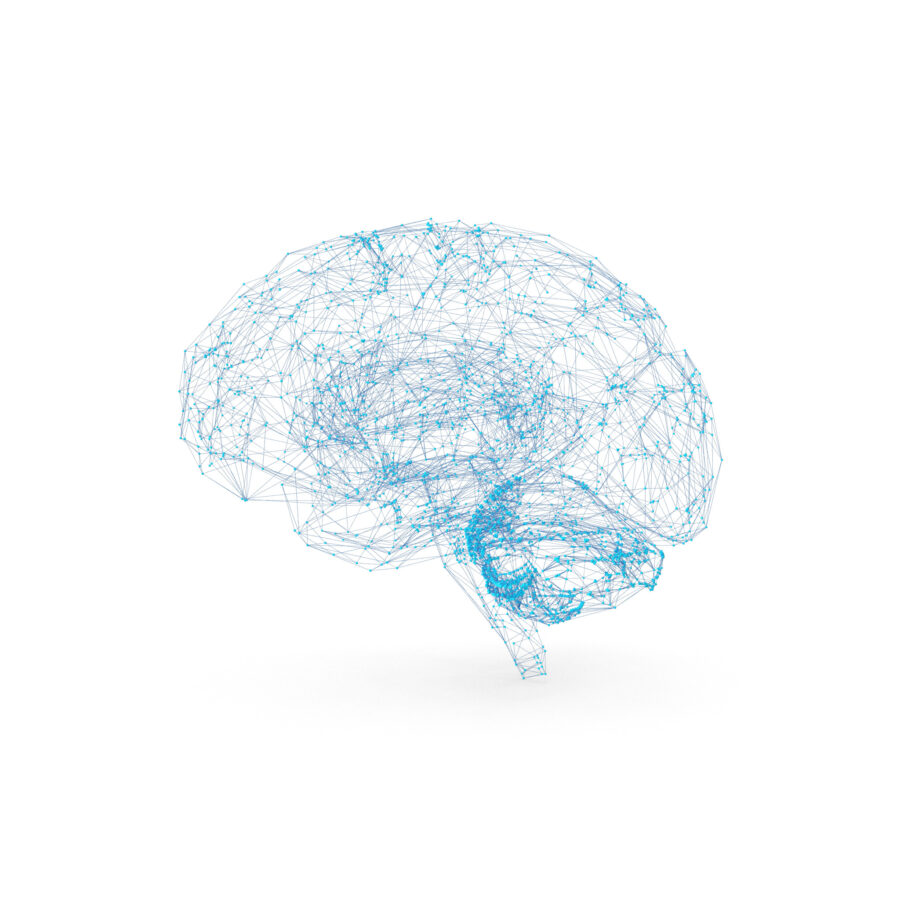
Mission and Goals:
We propose the continuation of the Neuromodulation Affinity Group to encourage transdisciplinary research and to educate faculty and pre- and postdoctoral students in neuromodulation interventions for neuropsychiatric disorders. The goal of the Group remains to use this education to enhance understanding of the pathophysiology of these illnesses, and develop novel therapeutic interventions for these conditions. The faculty included in this Affinity Group is drawn primarily from the new Neuromodulation Division of the Semel Institute that brings together research programs and experts from the School of Medicine Departments including Neurology, Psychiatry, Neurosurgery, as well as the School of Engineering. These faculty (many of whom are listed below) bring together common interests in understanding, utilizing, and developing neuromodulatory methods for individualized treatment of psychiatric and neurological disorders.
Neuromodulation Affinity Group Objectives:
The Neuromodulation Division of the UCLA Semel Institute utilizes state-of-the-art techniques to treat neuropsychiatric illness, and to understand brain function in health and disease. In concert with the Neuromodulation Division of the UCLA Semel Institute, the Neuromodulation Affinity Group:
- Elucidates mechanisms of neuromodulatory effects on neurophysiology and behavior
- Improves psychiatric treatments
- Applies neuroimaging-guided psychiatric treatments
- Develops novel engineering technology for neuromodulation treatments
- Designs, implements, and tests novel neuromodulatory devices in model systems
- Transfers novel technology and treatments to human clinical trials
- Promotes dialogue among experts in the field of Neuromodulation
- Educates the next generation of neuromodulation clinician-scientists
- Develops and shares tools to promote collaborative research
Regular Journal Club and Seminar Series
The Neuromodulation Division holds a series of regular journal club and seminar presentations from faculty members and external experts within the field. Relevant research articles will be presented and discussed between faculty and trainees during the biweekly journal club.
Affinity Group Participants:
Anne Milasincic Andrews, Ph.D.
James Bisley, Ph.D.
Alexander Bystritsky
Randall Espinoza, M.D., MPH
Itzhak Fried, M.D.
Nathaniel Ginder, M.D., Ph.D.
Neil Harris, Ph.D.
Marc Heiser, M.D., Ph.D.
Marco Iacoboni, Ph.D.
David Krantz, M.D., Ph.D.
Jean-Philippe Langevin, M.D.
Jonathan Lee, M.D.
Andrew Leuchter, Ph.D.
Michael Levine, Ph.D.
Jennifer Levitt, M.D.
Sandra Loo, Ph.D.
Katharine Marder, M.D.
Dejan Markovic
James McGough, M.D.
Nader Pouratian, Ph.D.
Reza Tadayon-Nejad, M.D., Ph.D.
Nanthia Suthana, Ph.D.
Scott Wilke, M.D., Ph.D.
Allan Wu, M.D.
The Affinity Group is led jointly by: Andrew Leuchter, M.D., Professor of Psychiatry at the Semel Institute for Neuroscience and Human Behavior at UCLA. He also is Director of the Neuromodulation Division and a Senior Research Scientist at the Semel Institute. Dr. Leuchter supervises speaker events, journal clubs and all other activities; and, Nanthia Suthana, Ph.D. is an Assistant Professor-in-Residence in the Department of Psychiatry and Biobehavioral Science and the Department of Neurosurgery. Dr. Suthana is the Associate Director of the Neuromodulation Division at the Semel Institute and Director of the Laboratory of Neuromodulation and Neuroimaging.
How to Join:
Andrew Leuchter, MD
Professor, Department of Psychiatry and Biobehavioral Sciences
57-456 Semel
Mail Code: 175919
Phone: 310-825-0207; Fax: 310-825-7642
Email: afl@ucla.edu
Nanthia Suthana, Ph.D
Assistant Researcher, Department of Neurosurgery
300 Stein Plaza, Suite 562
Mail Code: 690119
Phone: 310-794-4021
Email: nsuthana@mednet.ucla.edu

Mission and Goals:
HIV and COVID 19 are both human viruses, infection by which leads to neurologic disease. HIV is a retrovirus and is clearly neurotropic,
with tropism for microglial cells in the CNS, infection of which generates downstream effects that injure brain parenchyma. Its clinical and pathologic manifestations are fairly well characterized. By contrast, COVID-19 infection (caused by a more ‘conventional’ virus SARSCoV-2) leads to neurologic morbidity in a significant percentage of infected patients, but the
mechanisms for this are heterogeneous and may include indirect effects on the brain through activation of inflammatory cascades and possible microangiopathic changes. However knowledge of HIV neuropathogenesis may be instructive for understanding many aspects of COVID 19 neuropathogenesis. The themes/topics to be discussed at this meeting will include, but are not limited to:
1. HIV and COVID-19 neuropathogenesis: similarities and differences—and how these may guide future research directions
2. How useful are animal models of COVID-19 neuropathogenesis
3. Uniquely co-infected patients—with both HIV and COVID 19—distinctive clinical & neuropathologic features and what they tell us (we have encountered a small number of such subjects)
4. Usefulness of COVID-19 brain, spinal cord and CSF samples as a resource for future research—optimization for understanding neuropathogenesis
5. Impact of new approaches to tissue studies that may be useful
6. Approaches to clinicopathologic study of ‘long term’ COVID-19 infected individuals (‘long COVID’)
7. Does COVID-19 infection impact on brain aging? If so, how is the interaction mediated?
Faculty Participants
Harry V Vinters
Shino D. Magaki
Elyse J. Singer
Ting Zhang
William H. Yong
Mari Perez-Rosendahl
Cristian Achim
How to Join:
Harry V Vinters, M.D., CHS 13-344,
Email:hvinters@mednet.ucla.edu
phone: 310-825-6191
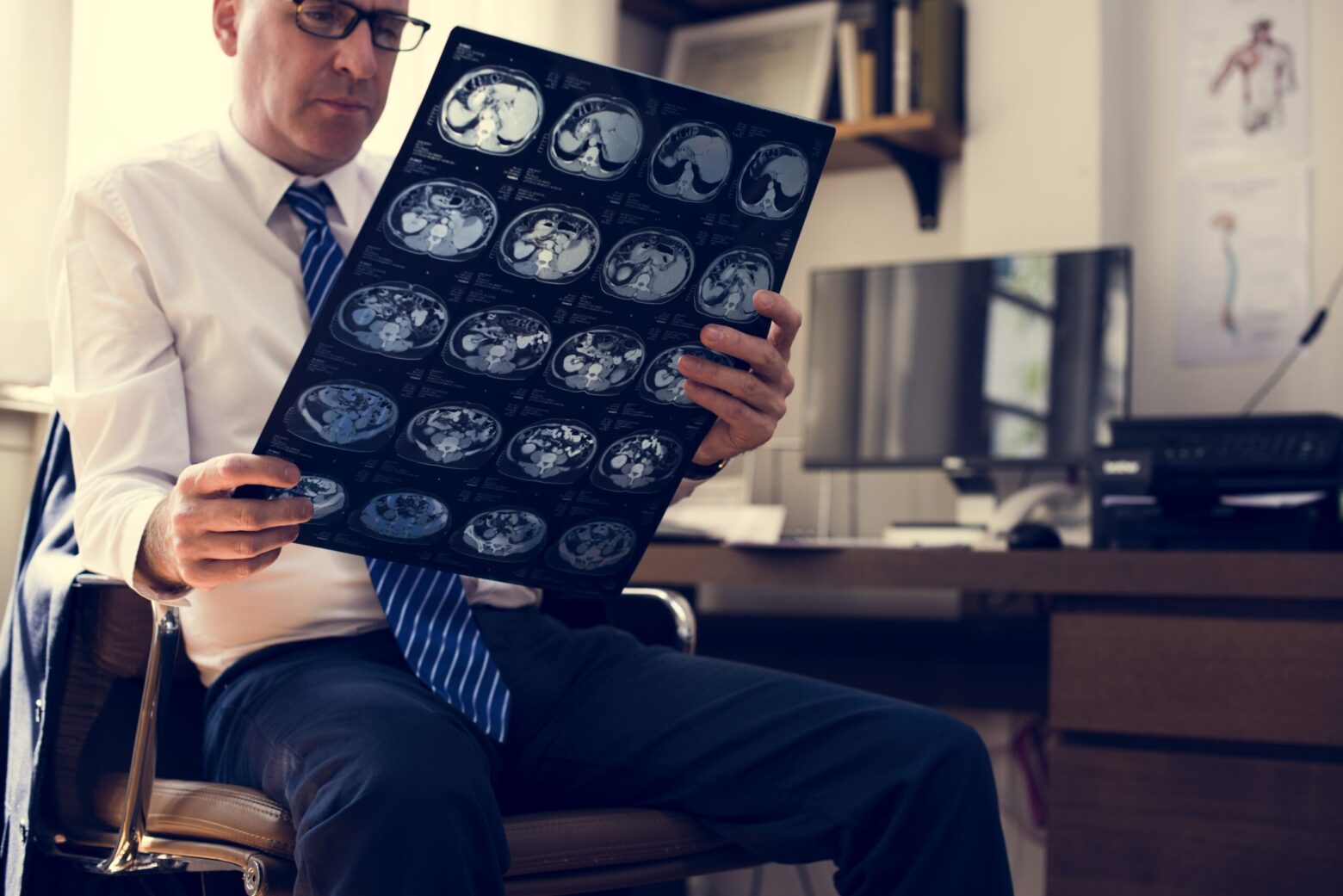
Mission Statement:
The Rasmussen’s Encephalitis (RE) BRI Affinity Group aims to increase awareness regarding RE for the primary purpose of supporting multidisciplinary scientific research directed towards a cure.
Background:
Rasmussen’s encephalitis (RE) is a rare inflammatory brain disease that causes intractable focal seizures, and progressive motor, sensory and cognitive deficits. Additional features of RE include progressive cerebral atrophy, hemiparesis, severe epilepsy and visual field defect. RE typically affects previously normal children aged 4-12, but may sometimes occur earlier or later. There is evidence for autoimmune etiology in which T-cells attack a specific unidentified antigen or set of antigens in a patient’s brain. An unusual feature of the disease that sets it apart from other inflammatory diseases of the central nervous system is that it is usually confined to one cerebral hemisphere. Resection of large areas of the brain, including cerebral hemispherectomy, is currently the only effective treatment option for children with RE. The purpose of the proposed BRI Affinity Group is to identify the “cause” for RE and develop new treatments that prevent the brain inflammation associated with this devastating disease to reduce or eliminate the need for brain surgery. To accomplish this goal the Affinity Group will develop an animal model and cell culture system for Rasmussen encephalitis. This work will set the framework for a larger initiative to make UCLA the preeminent center for translational research into Rasmussen’s encephalitis and, ultimately, other rare brain diseases.
Methods:
Through a collaboration with the Rasmussen’s encephalitis (RE) Children’s Project, a 501 (c) (3) non-profit organization dedicated to supporting scientific research directed towards a cure (www.rechildrens.org), a team of UCLA investigators have been awarded seed funding to establish the protocols and mechanisms to collect RE brain tissue. The RE repository will collect RE brain tissue, cerebrospinal fluid (CSF), peripheral lymphocytes from blood and saliva from donors at hemispherectomy surgery using IRB-approved standard operating procedures. The RE Children’s Project obtains RE brain tissue from centers around the world and ships that material to UCLA. Once fresh tissue arrives neuroglial cells, neural stem cells, brain infiltrating lymphocytes, and other cell types are isolated and banked along with flash frozen and fixed brain tissue, whole blood, CSF and DNA extracted from saliva. Brain tissue has already been received from over 10 RE patients over the past 18 months. The cell culture system will use these cells isolated from RE patients and stored in the tissue bank to create an in-vitro environment mimicking the cellular environment of the human brain. The animal model system will use cells isolated from RE patients and stored in the tissue bank for injection into immune-deficient mice to study seizure activity utilizing video and EEG. Tissue from these mice will be removed and examined under the microscope to look at the histopathology of RE in-vivo.
UCLA Faculty/Staff Participants:
Gary Mathern, M.D.
Aria Fallah, M.D., MS
Geoffrey Owens, Ph.D.
Harry Vinters, M.D.
Harley Kornblum, M.D., Ph.D.
James Cherry, M.D., MSc
Robert Prins, Ph.D.
Anatol Bragin, Ph.D.
Julia Chang, Ph.D.
Carlos Cepeda, Ph.D.
Michael Levine, Ph.D.
Noriko Salamon, M.D., Ph.D.
Coordinators:
Scientific Coordinator:
Geoffrey Owens, Ph.D.
Associate Project Scientist
Departments of Neurosurgery and Radiology
University of California, Los Angeles
Clinical Coordinators:
Gary W. Mathern, M.D.
Professor
Departments of Neurosurgery and Psychiatry and Biobehavioral Sciences
University of California, Los Angeles
Harry Vinters, M.D.
Professor
Departments of Pathology and Laboratory Medicine and Neurology
University of California, Los Angeles
Mission Statement:
To create cross-disciplinary exchange and collaboration to understand the neural mechanisms of adaptive and maladaptive decision making, loosely-defined.
Participants:
Michele Basso, Ph.D.
Hakwan Lau, Ph.D.
Pamela Kennedy, Ph.D.
Andrew Wikenheiser, Ph.D.
Melissa Sharpe, Ph.D.
Aaron Blaisdell, Ph.D.
Sotiris Masmanidis, Ph.D.
Laura Denardo, Ph.D.
Adriana Galvan, Ph.D.
Weizhe Hong, Ph.D.
Jonathan Kao, Ph.D.
Barbara Knowlton, Ph.D.
Nigel Maidment, Ph.D.
Nanthia Suthana, Ph.D.
Carolyn Parkinson, Ph.D.
Matthew Lieberman, Ph.D.
How to Join:
Kate Wassum (kwassum@ucla.edu)
or
Alicia Izquierdo (aizquie@psych.ucla.edu)
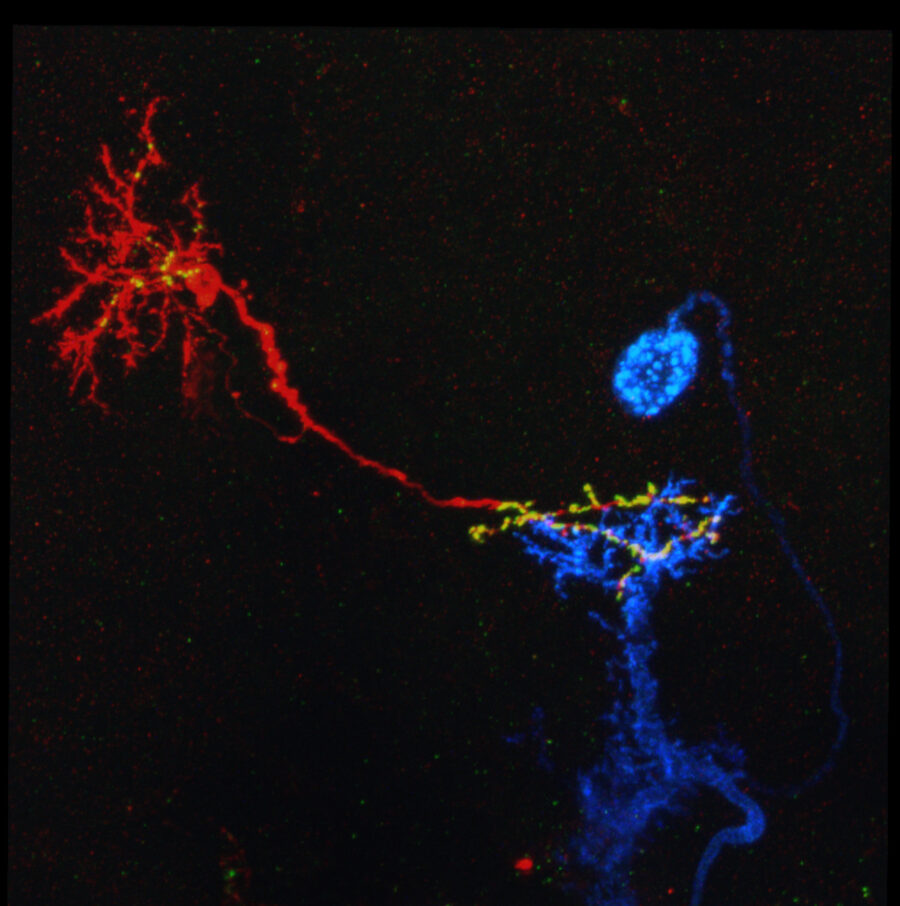
Mission and Goals:
The mission of the UCLA Synapse to Circuit Club is to provide a forum for communication between research groups (faculty and trainees) interested in the cell and molecular biology of neurons during the formation and plasticity of neural circuits. The focus will be on genetic, biochemical and cell biological analyses of processes that include, but are not limited to, axon guidance, synapse formation, synaptic plasticity and neural regeneration. Researchers on campus are approaching these issues from different intellectual perspectives and use different experimental approaches. We believe that there is considerable potential to enrich the academic and training environment in this area by meeting weekly to discuss recent research developments in the field.
Activities:
Meetings will be on a weekly basis on Friday from 3:30pm – 5:00pm with attendance from faculty and trainees (undergraduates, graduate students and postdoctoral fellows). The format of the meetings is one 45-50 minute presentation by faculty and trainees. These talks will be highly interactive; unlimited time will be allowed for questions and discussions. While the majority of talks will be presentations of ongoing research, some presentations will focus on recent developments in the literature. The schedule will be set on a quarterly basis and posted, together with any relevant publications, on a web site to be developed for the affinity group. Members of the affinity group will receive weekly emails notifying them of the weekly meeting topic. To enrich the weekly meetings and to promote communication between the UCLA neuroscience community and other neuroscience research groups in California, we will invite two outside speakers from California institutions each year (one each quarter).
We expect that weekly research meetings will greatly enrich molecular neurobiology research on campus. Communication between labs with common research groups is likely to stimulate new avenues of research, spark new ideas, provide valuable feedback on ongoing research, and potentially foster new collaborations between research groups. In addition to enriching the education and training of students and postdoctoral fellows, we anticipate that by including junior, mid-level and senior faculty, the weekly meetings will provide a valuable forum for faculty mentoring. Finally and importantly, the affinity group will raise the visibility of molecular neurobiology at UCLA, which will in turn be valuable in recruiting the highest quality trainees and faculty to our institution.
Affinity Group Participants:
Douglas Black, Ph.D.
Lars Dreier, Ph.D.
Weizhe Hong, Ph.D.
David Krantz, M.D., Ph.D.
Kelsey Martin, Ph.D.
Carlos Portera-Cailliau, M.D., Ph.D.
Alvaro Sagasti, Ph.D.
Felix Schweizer, Ph.D.
Joshua Trachtenberg, Ph.D.
William Yang, M.D., Ph.D.
Larry Zipursky, Ph.D.
How to Join:
Weizhe Hong, Ph.D.
Assistant Professor, Department of Biological Chemistry
635 Charles E. Young Dr., S
315 Neuroscience Research Building (NRB)
Los Angeles, CA 90095
Phone: 310-825-4986
Email: whong@mednet.ucla.edu
Website: http://www.biolchem.ucla.edu/people/faculty/weizhe-hong
Jeffrey Donlea, Ph.D.
Assistant Professor, Neurobiology
650 Charles E. Young Drive South, CHS 63-251
Los Angeles, CA 90095
Phone: 310-206-7586
Email: jdonlea@mednet.ucla.edu
Website: http://donlealab.weebly.com

Mission:
- To provide a home for interested investigators to collaborate on groundbreaking cannabis, cannabinoid, and endocannabinoid research
- To provide guidance and resources to help members navigate funding and research barriers
- To educate the public and health professionals about evidenced-based risks and benefits of cannabis use
- To lay the initial groundwork for the creation of a dedicated cannabis, cannabinoid, and endocannabinoid research center at UCLA
Background:
As of January 2017, approximately 20% of the U.S. population lives in a state with legal recreational marijuana, while an unprecedented 60% live in a state with legal medical marijuana. Despite this unprecedented access, the science behind cannabis is sorely lacking—we simply do not know enough about the potential risks and therapeutic uses. This lack of science is due to cannabis’ classification as a “Schedule 1 Drug”, which has blocked research for half a century. On the other hand, drugs like cocaine, opium, and methamphetamine are Schedule II drugs, and thus easier to research than cannabis.
In response to the urgent need for research on this matter, the UCLA Cannabinoid Affinity Group (CAG) brings together a group of multidisciplinary UCLA basic, translational, and clinical investigators to map out research into how cannabis and cannabinoids affect the human body and interact with the human endocannabinoid system. We are one of the first cannabinoid research groups established in the country.
2017 Inaugural UCLA Cannabis Research Symposium:
On Thursday April 20, 2017 we held the Inaugural UCLA Cannabis Research Symposium at the UCLA Neuroscience Research Building. Out UCLA faculty were joined by guest speakers Ken Mackie and Ziva Cooper for a historic series of talks on the latest science of cannabis, cannabinoids, and the endocannabinoid system. Over 200 people joined us in the auditorium, and over 10,000 joined us for the livestream. You can view videos of all the talks here (no Facebook account required to view).
Description:
On 1/2/18, California commenced adult-use sale of cannabis–that is, cannabis sales to anyone over the age of 21. California is now the largest legal cannabis population out of any state or country in the world. Furthermore, the federal legalization of hemp (defined as cannabis with <0.3% THC), creates an unprecedented opportunity to obtain and research federally legal naturally occurring cannabinoids such as cannabidiol (CBD) as well as the other 120+ cannabinoids which can be sourced from hemp. CBD has reached national attention as it appeared on the shelves of stores ranging from Costco to CVS, and has garnered a seemingly miraculous reputation for health benefits despite very little evidence. As a response to the urgent need for research on this matter, the UCLA Cannabinoid Affinity Group brings together interested UCLA investigators from different departments and schools to research how cannabis and its cannabinoids affect the human body and interact with the human endocannabinoid system. The faculty in the group encompass a wide range of basic and clinical research, spanning fields like pain, addiction, substance abuse, oncology, neurology, endocrine, gastroenterology, and integrative medicine.
Affinity Group Participants:
Raj Bantra, M.D.
Meeryo Choe, M.D.
Giovanni Coppola, M.D.
Patrick Dowling, M.D., MPH
Aimee Drolet Rossi, Ph.D.
Michael Fanselow, Ph.D.
Kym Faull, Ph,D.
Tim Fong, M.D.
Matthew Freeby, M.D.
Nelson Freimer, M.D.
Christopher Giza, M.D.
Christine Grella, Ph.D.
Arpana Annie Gupta, Ph.D.
Larry Hoffman, Ph.D.
Yih-Ing Hser, Ph.D.
Eric Hsu, M.D.
Ka-Kit Hui, M.D.
Shaun Hussain, M.D.
Alicia Izquierdo, Ph.D.
Shafali Jeste, M.D.
Eydie London, Ph.D.
Emanuel Maidenberg, Ph.D.
Stephen Marder, M.D.
Juan Carlos Marvizon, Ph.D.
Andrey Mazarati, M.D., Ph.D.
Larissa Mooney, M.D.
Michael Ong, M.D., Ph.D.
Roel Ophoff, Ph.D.
Lara Ray, Ph.D.
Ken Roos, Ph.D.
Steve Shoptaw, Ph.D.
Igor Spigelman, Ph.D.
Tom Strouse, M.D.
David Sultzer, M.D.
Don Tashkin, M.D.
Darren Urada, Ph.D.
Joyce Wu, M.D.
Website:
How to Join:
Ziva Cooper, Ph.D.
Email: zcooper@mednet.ucla.edu
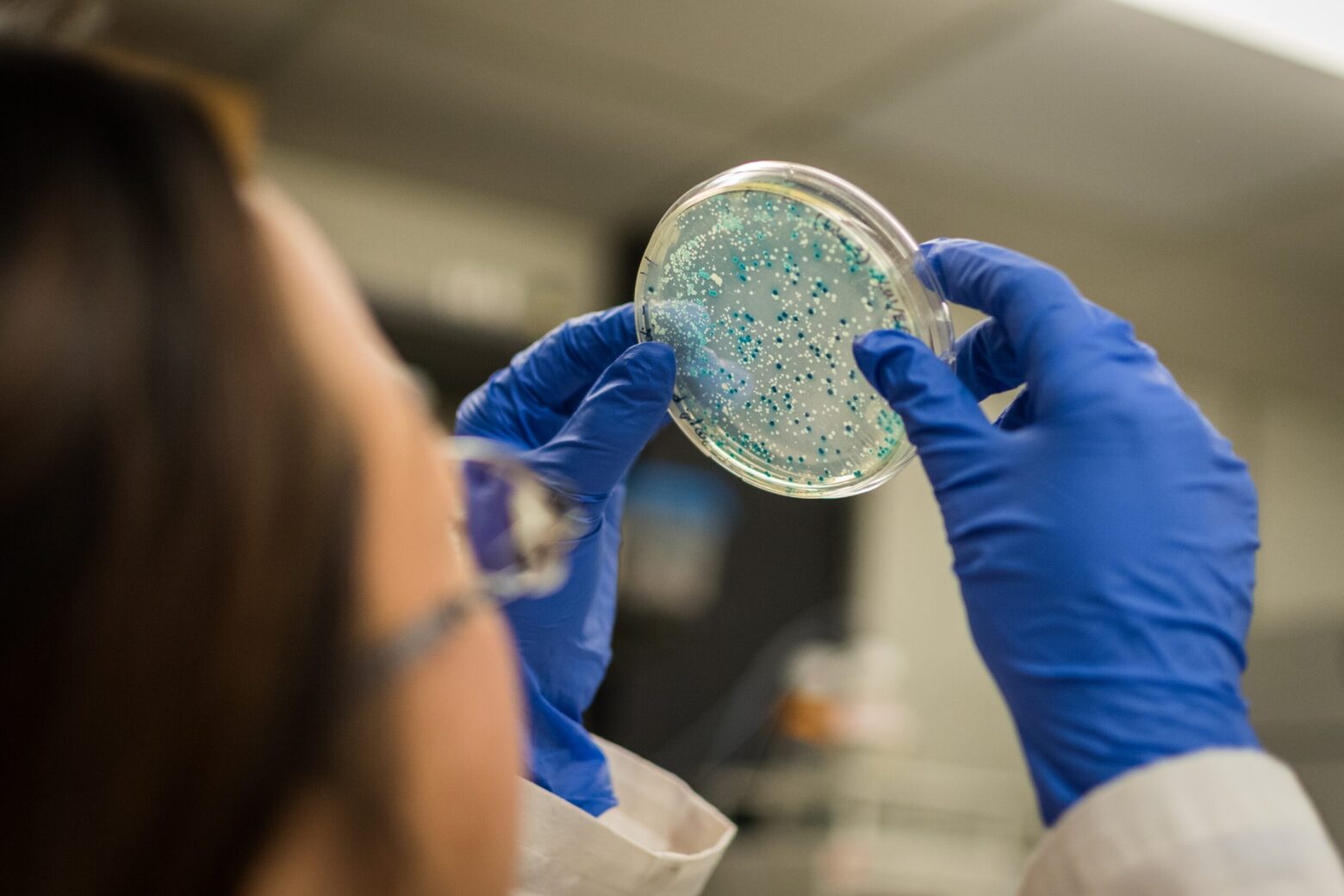
UCLA Microbiome Center
The UCLA Microbiome Center brings together UCLA investigators from different departments and schools interested in the human microbiome, representing a wide spectrum of expertise, spanning from oral biology, mucosal inflammation, metabolism, skin, to brain gut interactions.The main goal of the Center is to provide a home for microbiome interested investigators which will foster interdisciplinary interactions. In order to accomplish this goal, we plan to develop coordination opportunities for technology use (e.g., bioinformatics, 16s analyses, metabolomics), provide a forum for interdisciplinary seminars and lectures, provide opportunities for students, trainees and junior faculty members to develop expertise in the microbiome field, and identify and facilitate action on funding opportunities for large scale multidisciplinary research projects.
For further information about UCLA-based microbiome research, please visit here.
How to Join:
Elaine Hsaio, Ph.D.
Email: ehsiao@ucla.edu
Mission/Goals:
This proposal seeks to establish a new UCLA Affinity Group comprised of faculty in the North and South Campuses with common interests in research, education, and
health care at the intersection of music, neuroscience, and integrative medicine.
Participants:
Life Sciences
Michael Irwin, M.D.
Martin Monti, Ph.D.
Mark Tramo, M.D., Ph.D.
Stephanie White, Ph.D.
Xinshu Grace Xiao, Ph.D.
Eran Zaidel, Ph.D.
School of Music
Michael Dean
Robert Fink, Ph.D.
Lily Chen-Haftek, PhD..
Travis Cross, Ph.D.
Frank Heuser, Ph.D.
Daniel Neuman, Ph.D.
Neal Stulberg
Mark Tramo, M.D., Ph.D.
School of Medicine
David Alexander, M.D.
Gerald Berke, M.D.
Robert Bilder, Ph.D.
S. Thomas Carmichael, M.D., Ph.D.
Marco Iacoboni, M.D., Ph.D.
Michael Irwin, M.D.
Helen Lavretsky, M.D. MS
Andy Leuchter, M.D.
Raffi Tachdjian, M.D.
Mark Tramo, M.D. Ph.D.
How to Join:
Coordinator: Mark Tramo MD PhD, Depts of Integrative Biology & Physiology, Neurology, & Musicology
Contact: mtramo@ucla.edu; phone 805-495-6702; fax 805-495-6195
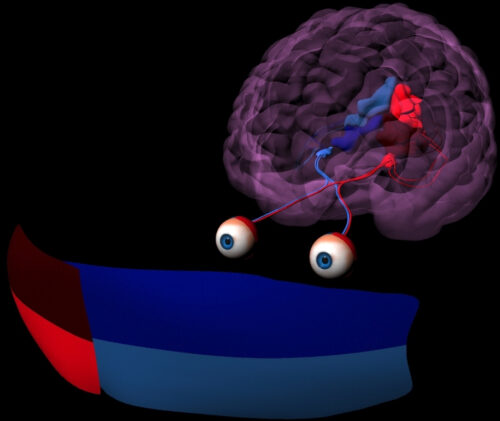
Mission:
Within the umbrella of Neuroscience, Visual Neuroscience has emerged as one of the first truly cross-disciplinary endeavors covering all experimental facets from molecular and cellular processes, to higher-level physiology and vision psychophysics. Experiments on vertebrate and invertebrate visual systems over the past half-century have provided a general framework for the design and function of neural systems that compute information and confer exquisite characteristics. Despite UCLA’s strengths in every experimental facet of vision science, Visual Neuroscience has never been used as an organizational structure for bringing together vision scientists until this past year. The mission of the Visual Neurosciences Affinity Group is to provide a forum for participants to interact across levels of biological and psychological investigation, and forge collaborations that will extend further our understanding of the function (and dysfunction) of the visual system.
Description:
This affinity group meets monthly between October through June. The program will focus on the presentation of scientific data generated in the laboratories of the affinity group members. Particular emphasis will be given to presenters who are senior graduate students or postdoctoral fellows, to provide these trainees with formal instruction and feedback in their scientific presentation. Once per quarter the affinity group will host a prominent speaker from outside the university to present an open research seminar, and also to interact with the trainees.
Please visit www.visionperceptionclub.wordpress.com for more information.
How to Join:
James Bisley, Ph.D.
Department of Neurobiology
UCLA David Geffen School of Medicine
Phone: 310-267-3467
Email: jbisley@mednet.ucla.edu
or
Alapakkam P. Sampath, Ph.D.
Department Ophthalmology and Neurobiology
UCLA David Geffen School of Medicine
Phone: 310-825-2024
Email: asampath@jsei.ucla.edu

